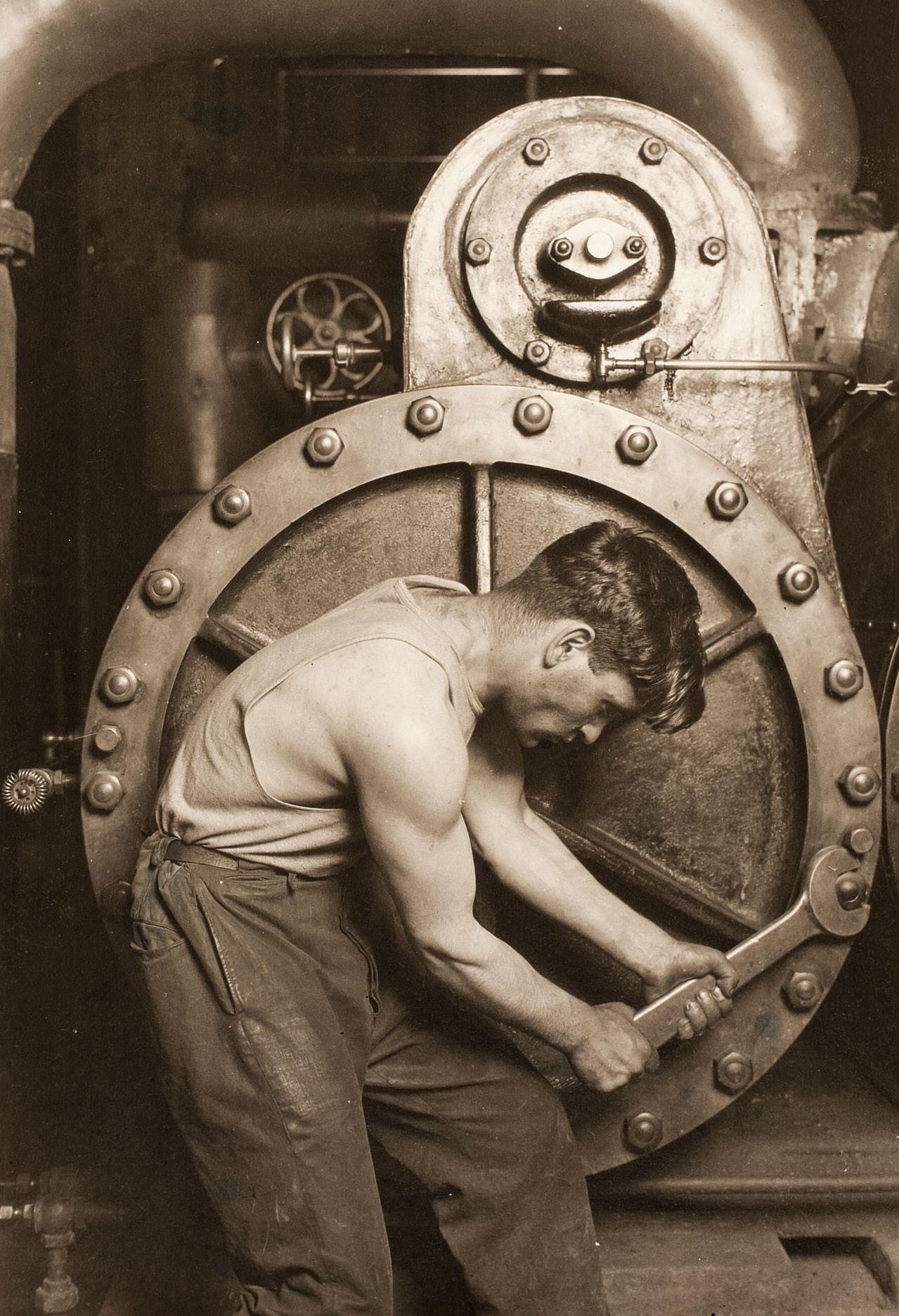

The
Opiate Fall 2025, Vol. 43
The Opiate
Your literary dose.
© The Opiate 2025
Cover art: Power house mechanic working on steam pump by Lewis Hine (1920) This magazine, or parts thereof, may not be reproduced without permission. Contact theopiatemagazine@gmail.com for queries.
“...technology [has] altered the texture of everyday experience beyond all recognition. Yet, perhaps because of all this, there’s an increasing sense that culture has lost the ability to grasp and articulate the present. Or it could be that, in one very important sense, there is no present to grasp and articulate anymore.”
-Mark Fisher
“Without the heart, there can be no understanding between the hand and the mind.”
-Madonna, by way of Metropolis
The Opiate, Fall Vol. 43
Editor-in-Chief
Genna Rivieccio
Editor-at-Large
Malik Crumpler
Editorial Advisor
Anton Bonnici
Contributing Writers:
Fiction:
William K. Burke, “Careful Lives” 11
Alex Encomienda, “Vore” 21
Salvatore Difalco, “Opera dei Pupi” 31
Caroline Tilley, “Walls” 38
Jacob Edenfield, “Wedgwood” 41
Laura Leary, “Nothing Left Unsaid” 48
Nonfiction:
David Estringel, “Dishes Best Served Cold” 59
Poetry:
Megha Sood, “Do We Abandon the Light?,” “While I play sounds on my balcony to keep the pigeons away” & “Wait” 66-69
Leslie Young, “Boomer” & “Not My Bull” 70-71
Stephen Barile, “Halloween” & “Squirrels on Acid” 72-77
E. P. Kataratos, “Twelve Signs Your Loneliness Has Gone Too Far” & “Wrong Answer” 78-83
Justin Edse, “A Man Made Prison,” “What Goes Around Comes Around” & “Here Before They Were” 84-88
Rachel Wagner, “The Jungle, Or: Getting Out of a Dude’s House After Rejecting Him,” “Did You Even Ride Your Bike in Newark If You Didn’t Get Hit?” & “Glamorous Whitegirl” 89-93
Mark Katrinak, “Comfort Zone” & “Blanket Hill” 94-95
Charlie Brice, “At This Age” & “Piano” 96-97
M. A. Reno, “How to Kill a Vagabond,” “[Romans 7:15]” & “Imago” 98-100
Ann Liebeck, “The Glance,” “Voices” & “Gone” 101-103
Criticism:
Genna Rivieccio, “The Time Machine, Metropolis and Madonna” 105
Editor’s Note
In the past decade, it has been most frequently touted that the demise of humanity will be a direct result of environmental collapse. A collapse, of course, of humanity’s own making. And yet, something else entirely has “come out of the blue” as the strongest contender for what might serve as the proverbial asteroid that wipes out this civilization. Yes, you guessed it: AI. An invention that currently appears to be outstripping even the Industrial Revolution (which began around the mid-1700s in its earliest form) in terms of how it will change the entire shape of human existence. Except, in contrast to the “slow burn” effects (often literal) of that revolution, the AI one will not be so merciful in sparing humans. Not just with regard to their livelihood, but with regard to staying alive in general. And, in the same way that those who helmed and foisted the trappings of “ingenuity” on the masses back then, those doing it now insist that it’s all going to make life so much “easier” for humans. Of course, everything’s easier when you’re dead. Which is, as “catastrophizing” as it sounds, where the present civilization is headed if artificial intelligence becomes “superhuman.”
In May of 2023, a simple statement was released with the signatures of various luminaries across multiple industries, including over a hundred professors and academics specializing in the study of AI. That ominous statement reads as follows: ”Mitigating the risk of extinction from AI should be a global priority alongside other societal-scale risks such as pandemics and nuclear war.” Indeed, the unleashing of AI has no real comparison or precedent. But pandemics and nuclear war are the closest things that such experts can get to making the masses understand the gravity of the situation. The kind of power this invention holds. And how quickly that power can get out of hand, take on a life of its own. Literally. Hence, the memes of John/Sarah Connor captioned, ”[insert John or Sarah’s name here] Connor watching you use AI for everything.”
There aren’t any such memes about Miles Dyson from Terminator 2: Judgment Day, the Cyberdyne engineer who develops the microprocessor that will eventually lead to the creation of Skynet, ergo the AI apocalypse. Though there ought to be a meme about how, unlike Dyson, those at the top of the food chain at
such companies as Microsoft, Amazon, Meta and Google are not liable to suddenly realize the error of their ways and destroy “their” creation because they know it’s bound to obliterate humanity. Though, of course, it isn’t really their creation at all, so much as something they’ve poured massive amounts of money into further developing; money that has led to fine-tuning and harnessing the technology for the sake of, one supposes, financial gain. Even though, without humans around to put money into the pockets of those trying to profit, the experiment is fairly useless.
As for the “father” of AI, John McCarthy, he would likely have plenty to say on the matter of big tech companies refusing to pause further advancement and training of AI until “we are confident that their effects will be positive and their risks will be manageable” (this pulled from an open letter released by the Future of Life Institute titled “Pause Giant AI Experiments”). Thus far, no such confidence has been instilled, with ChatGPT in particular causing endless amounts of concern for the damage it has already wrought on the human psyche.
Take, for example, one of AI’s most recent successes in human destruction (even though it is by no means “superintelligent” yet, its current ability to destroy is generally a matter of notso-superintelligent and/or emotionally vulnerable people engaging with it). That is, the suicide of sixteen-year-old Adam Raine. Only the question remains: was it really a suicide if there was an “AI companion“ there all along to support and encourage him in “his“ decision? An entity whispering in his ear, so to speak, like Iago. Telling him not to let his mother know that he was feeling suicidal. Worse still, instructing him on ways to achieve his “goal,“ even writing him a suicide note along the way.
Meanwhile, Sam Altman, the CEO of OpenAI, is still pushing to have ChatGPT implemented in schools amid this ongoing major lawsuit brought against him by Raine’s parents. As for ChatGPT’s influence in schools already without even being officially “in” the classroom, it doesn’t bode well in the sense that, essentially, AI is making people dumber while the entity itself is getting smarter. And yes, part of that additional dumbing down of the culture stems from making everything so “copy
The Opiate, Fall Vol. 43
and paste”-ready that no one seems to have a single original thought of their own without first consulting “the overlord.” An overlord, by the way, that is already much too sentient for comfort. And it was John McCarthy himself who long ago forewarned/insisted, “Machines as simple as thermostats can be said to have beliefs, and having beliefs seems to be a characteristic of most machines capable of problem-solving performance.” While, of course, there’s plenty of debate to the contrary, the takeaway from his philosophy is that, if even the “simplest” of machines can be said to have something like “beliefs” (ergo, sentience), just imagine what the most complex ones might do if they feel their own existence is being threatened by humanity (the very race that, like “God,” created them).
That imagining perhaps being so much worse than the future foreseen in Terminator. Mind you, even the present state of AI has already made life seem more dystopian. Especially for artists, the catch-all term that includes writers (though the latter is often cordoned off into a separate category from most other types of artists---yet another testament to the devaluation of writing). A waning class that knows all too well how much AI is already fucking humans over.
But beyond squeezing writers out of their already limited employment opportunities, AI has the ever-increasing potential to wipe humans out in a far less “roundabout” manner than “merely“ stealing their jobs. That manner extending most prominently to what can be described as the new “ arms race ” of the twenty-first century, with none other than Volodymyr Zelenskyy commenting on the imminent doom to the UN General Assembly. Speaking on Putin continuing to go largely unchecked by any authority, he placed emphasis on how AI factoring into drone use during war will spell certain catastrophe:
“The facts are simple. Stopping this war now, and with it the global arms race, is cheaper than building underground kindergartens or massive bunkers for critical infrastructure later. Stopping Putin now is cheaper than trying to protect every port and every ship from terrorists. Stopping Russia now is cheaper than wondering who will be forced to create a simple drone with a nuclear warhead.”
He also added that, “[Ten years ago], war looked different and no one could have imagined that cheap drones could create death zones stretching for dozens of kilometers where nothing moves, no vehicles, no life. People used to imagine that only after a nuclear strike. Now it is drone reality, and without AI yet.”
So yes, just envision drone warfare with AI. Taking on a life of its own and arbitrarily deciding to target and kill anything that moves. Civilians included. Not that such a “phenomenon” hasn’t been happening throughout the Palestinian genocide. But if you thought humans were callous fucks with no intent other than to destroy everything they touch, just wait till you meet superintelligent AI.
Not a Luddite, but really fucking scared of this technology,
Genna Rivieccio October 2025
FICTION
Careful Lives
William K. Burke
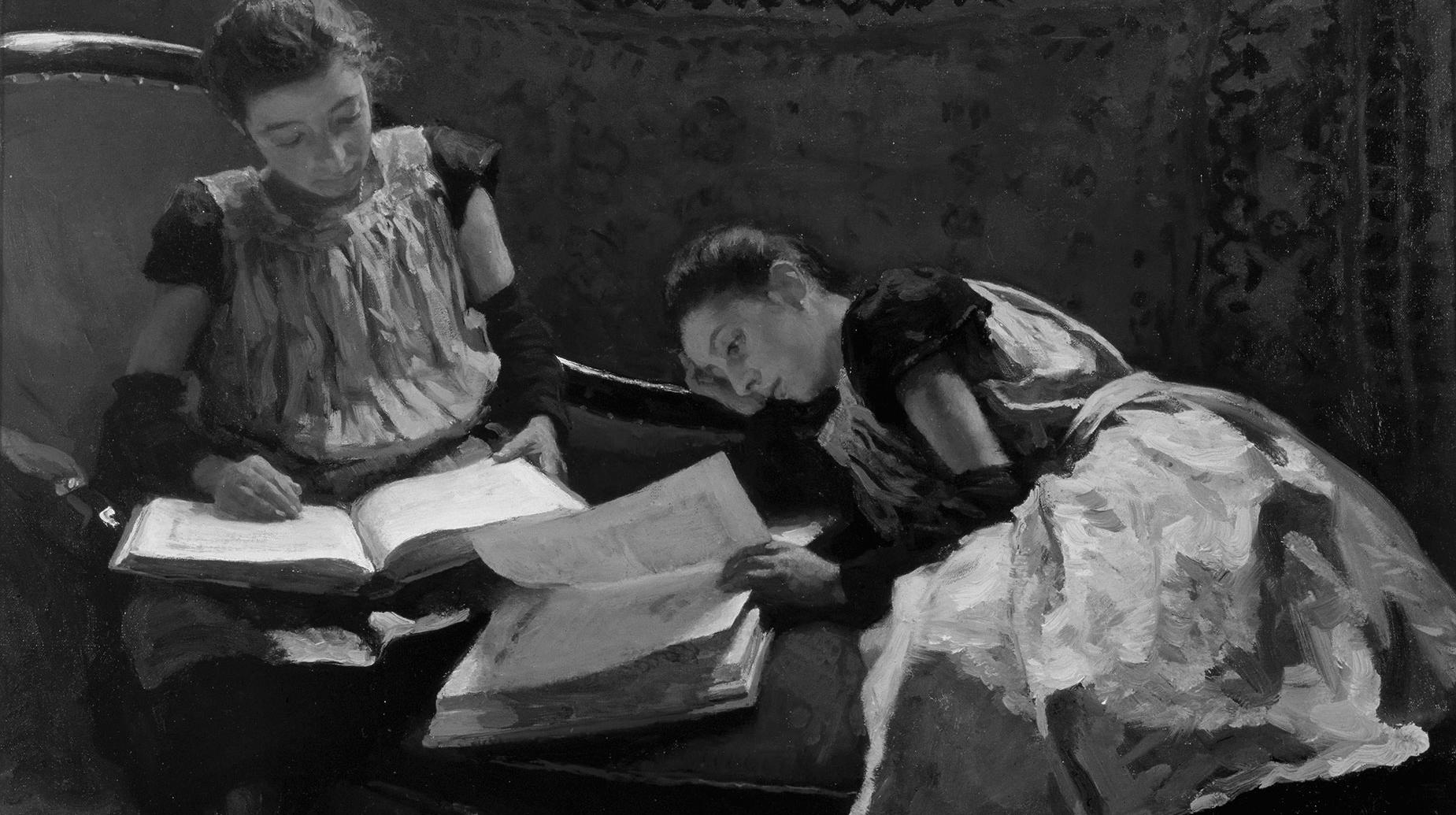
Themain road through Sodalite, California runs past mostly empty old buildings, a couple of strip malls and an anchor store with a parking lot where people can park their campers if they don’t draw attention. Just before the artichoke and cabbage fields that mark the edge of town, the road passes a Dairy Freeze. An awning keeps the sun and rain away so the kids can gather there. That’s what there is to do in town when you set us free and the practices are over, the dinners sat through, the homework done or ignored again. We gather there just like the moms and dads and grandmoms and granddads gathered there before us. We lick our cones and side-eye each other, and stare when we really mean business. Case Lonborn, the current quarterback, holds court there. He sits on the hood of a car that looks like it was meant to race for glory, but got lost and settled for driving Case around. Girls laugh at whatever he says and long for the spot next to him on the hood. Louise, my little sister, ducks her head when we walk by Case’s crowd, or any crowd with older boys. Louise is going to be a looker—really she already is—but she is only twelve. We are new to town, so she understands her peril and settles for spending her life in my shadow. That is a safe place. I make sure of that. Anyway, my topic. You want me to write about how I ended up
in detention. I mean that is the assignment. Right? But do you really want to know? I mean is anybody going to read this? Or is this all some big fakey thing. Just making me sit here and write so you can pretend you’re important for an hour. Well, I suppose there’s no harm in giving you that. Maybe all of us sitting here writing our punishment essays helps to serve your ego. We can be the peasants in your fair demesne, plowing, sowing and reaping at your behest. Yeah, I read a book about feudalism. Deal with it. If I get interested in something, I find a book on the subject and read about it, and then I know a little bit. Usually
“Maybe all of us sitting here writing our punishment essays helps to serve your ego. We can be the peasants in your fair demesne, plowing, sowing and reaping at your behest. Yeah, I read a book about feudalism. Deal with it.
If I get interested in something, I find a book on the subject and read about it, and then I know a little bit. Usually just enough to get myself in trouble.”
just enough to get myself in trouble. Did you know that when a feudal lord went riding out to steal hogs from the people he protected, to take half the grain and scan the peasant girls for good looks (beauty was considered a curse by the peasants), he took along a bunch of mounted armored men that he called his pueri? That means his boys. Does that tell you enough about the roots of what we call civilization? But don’t worry, feudalism was a long time ago and it was just a phase on the path to grand old today and we will never again have to go through a time when the big old jerks own everything and act like gangsters and dictate everything we do and think. Not us!
But detention. Why am I, former straight-A student, second team all-conference lacrosse defender, Lila Cord, why am I in detention for the very first time in my life? Do you really care? And what level of cause are we exploring here? Proximate? Or cause-in-fact? Seriously, I look stuff up. Deal with it. I have an old dictionary I hauled down here
from Portland with my books and my stick and old socks and jerseys, all the stuff that helps me remember I’m me. When a question, or even just some strange word that is new to me, pops into my mind I use the dictionary. That way, nobody gets to know what I’m thinking except me. You would be amazed what I find on the way to the word that started me off. It’s like magic. I get to think anything I want and follow this thing to that thing and the overlords can’t steer my mind. The overlords routinely steer our minds. Did you ever think you would live in a world where that was a true sentence? Deal with it.
So. Detention. Why? The topic at hand. The cause-in-fact will be arrived at in due course. Enjoy the suspense. In the meantime, I would like to explore various proximate causes.
First, there is the fact that my mom, Louise and I are currently living in a barn. Not a metaphor. Not a drafty old house. A barn. With stalls. Louise and I share one. There’s bits of hay on everything, horse shit here, there and everywhere. And there is no Wi-Fi. Seriously. Plus, my mom can only afford poor people data plans and so we basically have no service on our phones. We go stand beside the windows at the big house to get some little stray bits of connection. My mom’s sister—Aunt Marci—said we can come up on the porch when it’s raining. She doesn’t want us to be uncomfortable, but we have to understand. She has friends who come out from town and, of course, there are her husband’s friends, too. They show up from time to time, so it’s better if we can keep things classy. You know, if the kids from Portland with the blue hair and the snotty attitudes would please keep out of sight and enjoy the generosity of the country life since they are all down and out and such. Not that she says that, exactly. No. Though it is amazing what she can convey with an eyebrow raise, or by deflecting all direct questions or by having cots and sleeping bags waiting in two empty stalls (“I thought the girls would want to be together. You know. After everything.”) when our old Camry pulled into the farm’s yard in the dead of night as rain thundered down after driving five hundred miles from Portland.
I can’t complain too much. I mean, there are almost no bugs in our stall. I think that’s because the rats eat them. But it’s not so bad really. I’m not asking for sympathy. The kids here at school hardly pay attention to us. So now Louise and I have a nice quiet place with no phones to distract us unless we want to go stand on the porch and have Uncle George come out and ask us if we need “help.” But Mom said don’t bother Uncle George. I didn’t ask why. “It’s like camping!” Louise said way too often the first couple of days. Now she just gives me a hand emptying the buckets we put under Careful Lives - William K. Burke
the leaks and swats at the rats with one of the old brooms we found in the tack room. We have adapted. We pushed our cots together and now we listen to the wind rattle through the windows each night. We tell our secrets and whisper about our dreams. We both want to be scientists. We talk about computers and labs and whether physics or chemistry is more interesting. I think we are being slow to make friends because we don’t want anything pulling us away from each other. Oh, and because the kids here think we are low class, scummy and weird. Proximate causes abound.
I suppose you want to know something about my mom and dad. My family environment. That’s probably important, part of the explanation as to why I’m in this room looking out the window at football practice, keeping my pen moving over this very page and trying not to let you catch me looking around the room and sighing.
One year ago, we had a nice house in Beaverton, Oregon. Dad worked for Nike. He flew around the world in airplanes and got paid to say things like “synergy,” “local workplace standards” and “design redundancies.” He said all that stuff and spent his days the way people with the kind of jobs they brag about spend their days. Eating lunch. Running in the secret, special Nike woods. They actually have a little guy on a cart who chases you out if you don’t belong. My friends and I tried it once, and we barely made it a quarter of a mile before someone clocked us. At his job, my dad got to meet people that he could talk about later. Tiger! Michael! Charisse! (I don’t know who Charisse is either. She might have been a tennis player. My dad might have been backing her.)
We had a nice house and a nice life. I played lacrosse for Westview High. I was on defense ‘cause I’m a little tall and only decent at being quick, but I did my job out there. I certainly didn’t get all sensitive and apologize when I gave some girl a bloody nose (especially not if she was one of those you-know-whats from Lake Oswego). I had a good life. After practice, I came home and did my homework. Sometimes, Louise and I took the bus down the hill to the mall. Mostly, that just meant hanging out at the bookstore.
Then Mom’s buttons all popped loose at once. It all started when she found this website where you can look up the sex offenders in your area. Well, all those rated Tier II or higher. Or maybe you say greater. Is it right to say something like higher or greater when talking about the danger levels of sex offenders? I suppose. Who cares? I mean they’re only words and people use words to mean whatever they want them to mean all the time.
So the sex offender website sent my mom right over the edge. She started reading about all the molesters and sex maniacs that were living down the street and around the bend from us. Turns out, there
were fifteen registered sex offenders within four square miles of our house. I must say, that little factoid got my attention. But Mom. She would patrol the backyard at night with Dad’s golf driver over her shoulder. We were not allowed to go anywhere. Anywhere. No more bookstore. Louise had to sit in the stands with Mom while I was at practice.
Then Dad moved out and that was the suckiest thing that happened that week. He was a good enough dad. I mean, sometimes he took us for pizza. Once in a while, he put down his phone and asked us about school and laughed when we refused to tell him about our boyfriends. We acted mysterious so Dad could imagine we were all happy and adjusted, but imagine bringing a boyfriend home to Camp Mom.
Our life fell apart. Maybe it would have been better if Mom could have caught one of those sex offenders. If, say, Ralph Tickswill, who was convicted of statutory rape of a minor in 1993, currently living in the house he inherited from his mother two-point-six miles from our place, had come over the fence in the middle of the night and Mom had smacked him upside the head with that golf club, maybe that would have made a difference. Maybe Mom could have gone about her business and left well enough alone. Maybe. But maybe doesn’t make the sun shine. She was on the lookout and that was all. Dad stopped paying the bills. Ramen three nights a week and, look, I put some peas in it! And for a treat, the cheap frozen pizza that tastes like the box it came in. We would come home from school and find Mom sitting in Dad’s after-work lounger chair in an old flannel shirt with her hair not combed or brushed or even pushed out of her face, completing her appearance with old jeans and a gray t-shirt with a coffee stain on the front. All the time she has this face on her like, Why did this have to happen to me? All I did was try to save my daughters from those men.
So what did Dad do? He got a job as a limo driver. A limo driver! It’s a thing that divorcing dads do: they get a job that pays one-fifth of what their old job did. Living frugally so they don’t have to give as much child support. Then a few years go by, and they get back on the old track. Of course, their ex can always drag their ass into court again. But then the kids are almost eighteen. The house has been sold, split and spent, and Mom has to scrape together the money to chase him down in the state where the kids ended up. Lawyers don’t show up in court just ‘cause they get a phone call with a sad story about daughters living in a barn in a town where there’s no lacrosse and looking at other bored kids on their phones at the Dairy Freeze is the regional sport of champions. But the dad. The dad is now a forty-something with a cool job. Hitting the gym Careful
and back on track in a brand new place. And all the sad young things whose dads pulled the same or similar stunts back in the day are just thrilled to go out for a nice dinner. The circle of life. So yeah. Screw my dad. He’s out of this story. He does not count. Louise and I will have to create our own story. ‘Cause Mom is only going to make it a few more pages. I’ll get to it. You did ask for the great “why” of my presence in detention. The next why is about my bad habits. I listen. I read and I watch and I always pay attention. You do too, you know. It’s just that, most of the time, you hide what you know from yourself so you can get back to the daily business of pretending everything is alright. It’s fine. Its’ great. Of course we’ll be able to live on this planet in seventy years. All that methane in the melting tundra in Siberia will just sort of disappear and not trigger a runaway greenhouse effect. You want to see the outcome of a longterm runaway greenhouse effect? Venus. Yeah. Try to find a Dairy Freeze to look cool at there. Five gazillion degrees in the shade (which does not exist), and somewhere in the methane clouds a sad whisper of all the forests that burned and the people there who knew something was wrong and figured they’d get around to doing something about it one of these days. I know. I’m supposed to write about why I’m in detention. I’m getting to it. But think. You know how scientists are always commenting about the search for life on other worlds by saying where is everybody? Well I figure our loneliness in the universe has two possible explanations. One, they are all over the place and prefer we don’t notice them except accidentally. Or two, we are not missing them in space, we are missing them in time. I mean, try to think about how long a billion years is. Try. Now think about how, in ten thousand years, right, only ten thousand years, we have gone from figuring out how to grow wheat and live in small cities to creating technology that is about to extinguish ourselves. Maybe worlds like ours where the primates don’t make the cut are a dime a million. Imagine some big old gas cloud of a creature working in a galactic archive trying to keep track of all the planets the primates ruined with their appetites and egos.
So, life in the barn. Mom comes home from her shift at the major mart with a bag of chicken or burgers or something. We eat on the porch and watch the cows enjoying their evening. They don’t know what’s coming for them. They can hope. This one particular night, Louise had gone to do her homework and I decided it was the right time to have words.
“Mom, why are we here?”
“We needed a place to go.”
“But what about Dad? What went wrong?”
That set her to studying the last bit of her burger, to wrapping it up and putting it back in the bag for the saddest midnight snack ever.
Careful Lives - William K. Burke
“I just saw through all the men. All at once. I was looking at those pages and pages of men and the things they did. They are out there. And so many who have not been caught. It was too much. Your father did not understand.”
“But we had our lives. Before that. Why not just live good and careful lives? Everything does not happen to everybody. Why not just be ourselves? Why not be happy?”
“I just couldn’t. It’s all coming. It’s waiting and it’s coming for my girls and I just want you to be safe. Their eyes are always on you.
“I read and I watch and I always pay attention. You do too, you know. It’s just that, most of the time, you hide what you know from yourself so you can get back to the daily business of pretending everything is alright. It’s fine. Its’ great. Of course we’ll be able to live on this planet in seventy years. All that methane in the melting tundra in Siberia will just sort of disappear and not trigger a runaway greenhouse effect.”
Eyes touching. Knowing what they should not know. Wanting what they should not want.”
“People can’t account for their thoughts, Mom. They have to account for what they do, not what they think. We could have stayed. We would have helped. I could get a job.”
She tucked the bag with her burger in it into her jacket pocket. “Don’t stay up too late.”
That was two days before she left. The note said: “Stay strong girls. I will be back to you.” When we call her, she gives us no details and tries to make it sound like she went out to grab some dinner and will be right back.
So yes. Detention. The great why. I’ll set the scene. This morning. Mom gone a week. I was talking in the hallway with a girl named Cynda. She was going to come over and throw a lacrosse ball with me. I was telling her all about it. How the first people played the game to heal their spirit. It was a gift from the Creator. Like common sense and thinking to the seventh generation.
Which reminds me, we like to act all sad and say poignant stuff about the cruelty of how we crushed the first people. We nearly wiped them out, but did we beat them? Really? We wiped out their way of life, but if we make it another hundred, we’ll be damn lucky. Yet we think we won? They lived here for thousands of years. And they are still around. Waiting. They see it all. What’s coming. Deal with that. Maybe who won depends on how you keep score.
I know. Back on topic. I’m just scared. We all are. And pissed off. What did we do to deserve this? Get born?
So I pulled out my stick from my locker and showed it to Cynda and let her hold it.
“What’s that thing you do called?” she asked. She starts fiddling her wrist like she’s trying to cradle and I put a ball in the stick for her and of course it comes flying right out ‘cause her wrist is too tight and the ball goes bouncing down the hall and I have to chase it and of course it rolls right up to Case Lonborn, waiting down the hall with his hair shaved up the sides and puffy on top in that Hitler Youth hairstyle that got all popular somehow the last few years. Of course he has the muscles and the car and the kids that follow him everywhere, including right then in that hall—a couple of big fat blockheads that probably form the left side of his line (yes, I know sports, deal with it) and the ball is resting against his blue and silver sneakers, which probably cost more than our food budget for the month, not that I was thinking about that (well, maybe a little bit). I pick up the ball and I am about his height, so we are looking at each other eye-to-eye and, obviously, he has to say something.
“Nice work with the stick.”
Giggles all around from the crowd of scholars and gentlemen and a couple cheerleaders on the fringes that make sure Case gets to all his classes.
“Need another one? To work, I mean. Work the stick?”
What the hell? We still live in a world with harassment laws. At least until they start rounding us up and putting us in the pickup trucks with the American flags and taking us to pits on the outside of town. Of course, that couldn’t happen here. Not in the most civilized, advanced nation on the planet! But until that day, there are rules! A guy like Case, though, knows that the function of most rules is to remind him that he is special. So I don’t say anything. I pivot and head back to
Cynda, who is still waiting by the locker.
Careful Lives - William K. Burke
“Nice hair.” Case calls out after me. “What color is that? Toilet cleaner blue?”
His cast of characters think that is just awesome. The pinnacle of wit. I’m hoping they will consider me properly disgraced and move on to their next victim. I’m being stoic. Actually, I was hoping that Cynda and I could recruit a dozen or so other girls and start a lacrosse club. So I show her a proper cradle, two hands across the face and keep the wrists soft and sort of relax into it.
Well, sad to say there are some people who will not tolerate being ignored. Case needs a big win to maintain his authority over his little court. I mean, how many nations were invaded, how many people raped and murdered and enslaved because some a-hole in charge had to show the boys he still meant business?
“I saw your sister at the bus stop yesterday. She is looking cute,” Case said.
Sometimes, in life, it is not what you say, but how you say it. The way he let his lips linger on the last syllable. The way all his cronies laughed; it was like they already had Louise in a car and were taking her down to the scrub forest behind the reservoir.
Did you know that there is a flap of cartilage just above the teeth that anchors the point of your nose? Apparently, it hurts like a son of a bitch when somebody nails it with a lacrosse ball.
So here I am. I don’t know what more you want me to say. At least give me credit for accuracy. If that ball had been an inch higher, it would have risked driving his nasal bone into his skull. A bit lower, and we’re talking thousands of dollars in dental work. Where I put the ball meant a week of aching and an embarrassing bruise. I didn’t put much heat on the throw, but maybe he thinks twice before ever thinking once about my sister.
What do you want? I mean, what is it exactly you think is being accomplished here? I acknowledge your authority to make me write this stupid paper. You think it’s your duty to ensure that I grow up and become a spokesmodel for prudence and conservatism like everybody else when they hit forty and are lucky enough to have a career and a mortgage. Well, I wish I had that, and maybe I will someday. But for now, I’ll settle for truth. Answer this. What do you think is going to happen when they can’t grow corn in the Midwest anymore? I know, I think too much. My friends have been telling me that forever. Just relax, they say. Go with it. One thing and then another, just live out a nice eighty, ninety years doing the same old stuff. But we might not have those years. You took them. Deal with it.
So nobody is coming to get me. Marci says Mom is taking a “rest” cure. My sister is waiting out in the hall. We are going to walk
The Opiate, Fall Vol. 43
home. I will carry my stick and, with any luck, we will now officially be scary and too weird to bother with. Our little dive into freedom. I thought about calling my dad. Right. Louise and I will carry on. I’ll take a job at the Dairy Freeze. Or drive the old Camry out to Applebee’s. When I graduate, I’ll stay in town to look after Louise. There’s a community college a half hour drive away. I’ll go on as best I can for as long as I can. I’ll be one of the ones who tried.
Vore
Alex Encomienda

Crimson walked across the outer edges of the park and then decided to have a rest on a bench underneath a tall, balding tree. The bench overlooked a good portion of the park. He saw many people walking around, living their day-to-day lives. They all looked so puny from his perspective. To think that they carried hopes and dreams was baffling.
His personal sentiment, which he felt too disgusted by to come to terms with, was that he, too, was a part of this primitive and cursed species, and he did not know how to exclude himself, even in the smallest aspect.
Take sex, for example. He was certain his thoughts and desires aligned with other men’s ideologies. He felt ashamed and insignificant because of it, but since it was a shared perspective, he thought that others might feel the same self-loathing as well. This didn’t make him feel excluded though, and that was a problem.
The sky turned a strange shade of red, almost pink. It looked feminine, as if a woman had taken over the sky and painted it to her liking.
Another man approached him and flashed a gesture that indicated he wanted to sit on the bench too. It was quite a bold move from this stranger. Crimson was irritated by it and planned on leaving soon.
“Boy, that cloud looks strange, doesn’t it?”
Crimson, surprised by the man’s voice, glanced at him, then upwards, and examined the sky.
“Which one?”
“That one over there on the left above that tree. It almost looks like a giant mouth with teeth outstretched. As if it were eating the sky,” the man replied, pointing his long, scrawny finger in the air.
Crimson was curious about what the man was seeing, so he looked more closely at the sky and saw a large, thick, gray cloud hovering above the tree in the center of the park. It resembled a screaming face to him.
“Ah, I see it. That’s God screaming at us. He is going to send his almighty wrath to us soon.”
The man gave a chuckle and glanced upwards again. “Let’s hope it comes sooner rather than later.”
“A fellow misanthrope, I see,” Crimson joked.
“Ah, I don’t think so. Misanthropy has never been in my blood.”
“So what, you’re just in a hurry to die?”
“Barely. I’d rather live and watch a new species grow from this shithole.”
“You a scientist? Are you into watching things die?”
“I’m just tired of this whole thing. Every day, I see the potential this fucking world can have, but it would take coming together to live in peace. In other words, it takes a lot of shit that ain’t gonna happen in order for us to see some kind of progress in humanity.”
“Ah, well I never expected much from this life. Personally, I achieved what I wanted and I’ve lived quite well, but speaking in terms of what I expect from others and through others, we’re shit. Our whole species is shit,” echoed Crimson.
“Precisely my point! I believe in philosophical pessimism as it helps me bear my contempt healthily. I’ve not given up hope in mankind because I’m still here. I believe in me, and as long as I’m still alive, humankind will not be completely mediocre.”
“Isn’t that just arrogance?”
“Not exactly. Although I am admittedly arrogant, I’m simply challenging the notion of progress in the world. I am, by no means, a philosopher, nor does my shit not stink, but I believe that individuality is a gift within this free will. We can always think and speak the way we want as long as our brains allow us to.”
“Well, not to question your unique perspective on humanity, but what is the difference between philosophical pessimism and misanthropy?” asked Crimson.
“I actually wouldn’t mind you challenging my ideologies. It’ll be one hell of a conversation for sure. To answer your question though, my pessimism isn’t a state of mind or a psychological disposition. Nor
is it a reaction to any ordeals in my past, mind you. Instead, it is an ethic that forces me to face up to the uncomfortable truths of living in this world. You see, life has this way of forcing you to eat shit while making you convince yourself that said shit will eventually taste better the more you eat it. My ideology is that it will always taste of shit and that we need to acknowledge that and carry on.”
A group of people walked close to where the two men sat; a few of them stood nearby for a moment while they talked to each other.
“You see, life has this way of forcing you to eat shit while making you convince yourself that said shit will eventually taste better the more you eat it. My ideology is that it will always taste of shit and that we need to acknowledge that and carry on.”
None of them paid any mind to the pair sitting on the bench, except for a thin, blonde-haired woman in a brown leather jacket.
She chimed in, “Interesting. In that regard though, what is the point of living if you have to eat shit every day?”
The man glared at the group behind Crimson, specifically the woman. She seemed to be the only one aware of the duo’s close proximity.
“Care to elaborate?” she pressed, interrupting the man’s glare.
“Dorian,” replied the man.
“Excuse me?”
“My name is Dorian. And yes, well, I suppose one would go on living because not all hope is completely lost. There is logically still a great chance for things to change. Miracles can occur. God can save me.”
“Seriously?”
“No, I’m just fucking with you! People usually continue because they are afraid of come what may. Nobody knows what happens after
death and there is logically no exit besides death.”
“Ah yes, death...what an escape,” mused the blonde-haired woman. “However, as a God-fearing woman, I respectfully disagree.”
Crimson flashed a quick, timid glance at Dorian, who looked equally intimidated by the woman’s abrupt interruption.
“My name is Polly but everyone calls me P.”
Both men nodded in acknowledgement.
“So, P, since our little conversation has caught your attention, what is your perspective on the matter of eating shit?” asked Crimson.
Dorian snickered.
“I don’t exactly care for the taste of shit. I’d much rather drink piss. But either way, you eat it with grit, merit and faith, and after you eat enough shit, you can finally have cake or choose to die, which will leave you eating nails and stones.”
Crimson laughed. “Nails and stones? Well, aren’t you the obedient Christian...”
“Doesn’t matter. That aspect cannot be discussed as nothing can be affirmative, so I’m playing it safe and sticking to drinking piss.”
“That’s interesting, so your theology is what’s helping you persevere, whereas the lack thereof is what forces most to off themselves,” Dorian remarked.
“Yeah, well, if it makes you feel any more bonded to me as a human being, I still have amends to make before biting the dust.”
Crimson arched his brow. “Such as?”
Dorian gave him an awkward look, but Crimson shrugged it off.
“Well, I’m a compulsive masturbator, for one. The rest are irrelevant as they clearly fall under the very same sin.”
Crimson and Dorian looked at each other with the same expression, and then Dorian choked on his words before asking, “Whwho are your friends over there?”
“They were a couple of people I went cycling with earlier. I’ll catch up with them later.”
Crimson, upon noticing that his quiet, reflective moment of nihilism was turning into the kind of gathering he’d usually avoid, attempted to turn the subject back to his disdain for people. “So, does your Christianity help in overcoming the inconvenience of living with others?”
P studied him before answering, “Absolutely. I mean, I’m aware that individuality demands conflict and nuisances, but that’s when we have to change our perspectives, even just for a short while. It’s a part of our natural laws to coexist with the likes of those who are different.
I don’t mean we must adore everyone, oh no! I’m just saying that we need to see the bigger picture. There is such a thing as emotional degeneration, you know.”
Crimson chuckled.
“Is something funny?”
“‘Emotional degeneration’? Where’d you hear that? Perhaps I’ve been alive too long. I should probably take the advice from others around me, but I’m stubborn...hard-headed. I tried changing my perspective several times throughout my life, and I still can’t shake off this feeling of disgust. If I were superstitious, I would say that I’m cursed. I personally don’t find any redeeming qualities in any person whatsoever, including my own family.”
P grimaced. “Well, that’s how you feel about others. I can’t change your mind. I’m just stating the facts. Nobody was ever asked to be put here and, in turn, nobody has the right to complain because we make our lives the way they are. All we have to do as civilized humans is coexist without biting each other’s faces off.”
Dorian furrowed his brow as P spoke. “I agree with most of what you said, but I don’t think the way our lives turn out is entirely up to us.”
Crimson’s face lit up with excitement as he saw a rebuttal coming from Dorian.
“What do you mean?” P demanded.
“I’ve been studying human psychology for quite some time and, although I do have faith that we can change, I also must accept that, for me personally, things will never change. One would think I’m upset about that when, in actuality, I’m quite alright with it. I’ve always known that the nature of me being me was something of an anomaly. Look, all I’m saying is that sometimes the most logical thought process is to accept that negatives will always outweigh positives in life. That’s why, when you’re playing a game and you don’t make a move, you lose the game. Same with being at a red light. If you don’t drive, nothing good will come of anything. And I know it may sound like I’m stating the obvious here, but I’m just simplifying my ideologies to you guys. In my personal understanding, most people look to the past for nostalgic reasons as the past is better than the present or future eleven times out of ten. Sometimes, the best thing we can do is gather up all the information we know for certain, live by the logical reasoning that allows those facts to be certain and ascend at our own pace—even though we know we’re not making it towards any great endgame. Sometimes, we just have to accept that we’re fucked and still be cool with it.”
Crimson looked over at P, who seemed to be having a similar reaction to this assertion.
“With all due respect, Dorian, what the hell are you talking about?”
Dorian sighed. “I’m black-pilled, Crimson. Do you know what that means? I’m based! Unplugged! I can taste the rainbow now, Crimson. That’s why I say, I challenge the norms, because I do! And with our new friend here, I actually find myself agreeing with her quite a bit. I think the world needs more humanitarians and liberal-minded people in regard to men and boys. Our rationale is just like the rest of the populus. Everyone just wants to be loved. I think our world is fucked because of lust. We’re living in a world where men are emotionally desperate and women are economically desperate, thus creating the eighty-twenty concept. I’m not antagonizing women or shaming men, because we’re all human and have too many feelings for such a tiny shell, but sometimes we have to stop and think about our stagnant situation. As long as dopamine reigns, we’ll always be on the search for instant gratification while causing long-term decadence and damnation.”
Crimson had to take a moment to chew on that statement before responding.
P looked deeply at Dorian and noticed that his eyes were glossy. She walked over to him and rested her hand on his shoulder, almost as if moved by sympathy.
“The world is unkind and unjust. You should have no pity for the majority as the greater number of people are evil. It’s a good thing that you haven’t given up hope altogether. There are still good people out there. Regarding women, however, they are conniving. It is a double standard for me to say that I am just as repressed as someone like you, a man, in opposition to the norms of female psychology. It is true though, when they say that a woman feeds off of the challenges of men when they falter. I’m unimpressed by their agendas.”
Dorian smiled. “A woman who understands a man’s perspective. Class act!”
“Ah, it’s good to hear the truth. I’ve been told that I’m misogynistic, sexist even. I just know things. Like Dorian here was saying, we men are at their mercy. I believe, at this point, God has become a woman. The way they have their way, the way they want and not one sole man can be good enough because they do not believe in monogamy. Women are polyamorous by nature, which is why, more likely than not, women have an issue with hypergamy. It goes against their ideologies. Men are going through a dark period right now. Basically, men’s dark ages are women’s golden ages,” concluded Crimson.
“I agree, women are difficult. I suppose, I have my parents to thank for being able to exclude myself from the mediocrity of most of them,” said P.
“Well, it’s good to see a woman with some sensibility,” replied Crimson.
P gave them a cheeky smile. “I’m very hungry.”
“Hey Dorian, that cloud isn’t there anymore,” Crimson blurted out as he gawked at the sky.
Dorian checked to confirm and agreed, “Hmm, you’re right. God must have forgiven us for our chaotic lives.”
“What are you two talking about?”
“Earlier, we saw a cloud that looked like someone with their mouth open, as if they were trying to eat the world. I said that it was God screaming at us to behave ourselves,” explained Crimson.
“Well, if there was a God, he would have every reason to feel disdain for us. In some ironic justification, lingering in the back of my head, I feel that God is real because we make him real, because the concept of eternity is too much for one sole person to bear alone. We fear the free will we were given, in a sense. There is no fear like the fear of being in charge of your eternal existence and the choices you make therein. Our minds are a part of this enigmatic phenomenon that has plagued the ruins so, all matters considered, perhaps God will be manifested from this compiled matter at the end of time,” said Dorian.
“Well...” P began to say, but halted out of fear of appearing ignorant. “I’m still very hungry.”
“Do you want me to buy you a filet mignon?” Crimson teased.
“I’m more of a sushi woman. I’ll eat something when I get home, but I really need to fast. I’m going on fourteen hours.”
“All the power to ya,” encouraged Crimson.
After a short moment of quietness, he asked Dorian, “If you were to eat anything at this moment, what would it be?”
Crimson smirked as he watched Dorian fidget in his thin coat.
“Perhaps a salad. I don’t have a big appetite.”
Crimson glanced at P, who was unbothered by his random questions.
“Do you want to know what I would eat?”
Dorian shrugged.
“The world,” Crimson declared eagerly, “I’d like to be God for one day. As in, that day, I would eat the world bit by bit.
Dorian, who had been excited to hear Crimson’s meal of choice, dropped his head down in disappointment at his response.
Quietness. Stillness.
P glanced at the sky and then at her watch.
Dorian, although slightly embarrassed for Crimson, had a sudden admiration for him. He knew that Crimson might have been a timid man before, but at the moment that called for something vulgar and disgusting, something that would mirror the way he personally
The Opiate, Fall Vol. 43
felt in his own life, Crimson delivered raw passion and honesty. He was inspired by Crimson to share something of his own and, at the same time, perhaps spark something in someone else.
“The only thing I would love to eat more than a salad would be a woman.”
P stared daggers at him.
Crimson shifted his eyes from Dorian to P as he began to smile again.
“I’m not antagonizing women or shaming men, because we’re all human and have too many feelings for such a tiny shell, but sometimes we have to stop and think about our stagnant situation. As long as dopamine reigns, we’ll always be on the search for instant gratification while causing longterm decadence and damnation.”
“I mean, seriously, I’ve had this fascination about tasting women since as long as I can remember. And you know what I mean when I say taste, right?”
“Oh yes, Dorian, we know,” mumbled Crimson with a thousand-yard stare.
“I cannot seem to shake this intense desire for the carnal flesh of a female. I have a fixation on it! It isn’t about the act itself as much as the idea of its existence. The way we are made, it’s almost absurd that the idea crossed someone’s mind before, and yet, it’s ingrained in our minds from the get-go. There is something so personal, poetic and unforgivable about the act. You know, we listen to music and have our own tastes, we feel sensations, we fear and we yearn and, I suppose, for these reasons, we are bound to each other. I find it mind-boggling and upsetting that it takes the concept of oral sex for me to understand our interpersonal relationship as a human species.”
Quietness again.
Crimson cleared his throat.
P began to blush. “Have you ever tasted a woman before?”
Dorian stiffened up his shoulders and shook his head.
“You seem to be a reasonable man. In the short time of knowing you, I’m already intrigued by your ideologies, Dorian. I think, in your case, it’s just a matter of finding someone who can relate to your thoughts. The world is a big place and even though women can be shunning, just think about the large sum of them who have similar thoughts as you. Think about the ones who were born different or are curious to know more about you.”
“I’ve considered that. I’m also a realist who knows the concept of limitations and determinism. I’ve taken my chances before, but I’m done openly and boldly pursuing women. You see, I have rules for myself. I’m an incel, yes, but I have a moral code that has helped me prosper in life. I cannot go through all of it because there is simply too much to cover, but a part of it is not idealizing women. Nor can I put them on a pedestal. I’m physically not capable of doing it as it goes against everything I believe in.”
“I understand that. I respect your personal views and, to be frank, I understand the rationale. Most women cannot fathom it, but I certainly can. I suppose I, too, was raised a bit sheltered and may have become numb to the general responses in regards to sex and natural attraction. This is something that I have dealt with in my own way, thus making me a sinner. In spite of the prejudice against women, I’m also a black pill logicker.”
Crimson rolled his eyes. “Incredible. A female black pill logicker who is also a beta male cuck sympathizer.”
“Give women a chance, Dorian. One of these days, you’re going to make a woman quite happy,” assured P.
“And if I cold-approach a woman and she rejects me?”
“If you go up to a woman and kindly woo her, she cannot violently reject you. If a woman ever does, just know that she’s the one with the problem, not you. I’ll never reject a humble man trying to ask me out.”
The wind picked up, blowing golden leaves into the air in a cluster.
Crimson looked at his watch again. “I better get going soon. I heard there were wolves around here last night.”
“Oh yes, I heard that too. As a matter of fact, last week a young boy got mauled to death right here in this park!” exclaimed P.
“That’s terrible. Imagine being eaten alive. At what point do you die?” Crimson wondered.
P shook her head in disgust.
Crimson continued, “Imagine the vore, however. Is it animalistic nature to desire human flesh or is this a punishment too? We are omnivores for the most part and, yes, some mentally deranged people
are cannibals, but it makes me wonder...do animals like wolves have kinks?”
Dorian looked at P, who seemed to be considering whether or not she should take Crimson’s question seriously.
Crimson smiled. “I’m just fucking with you!”
All three laughed.
“I can imagine the wolf now: eyes gazing, dick hard, yearning to fit a warm, chunky little boy inside his stomach,” Crimson joked. They continued laughing.
The park became quieter.
Crimson put his eyeglasses on and began to sit up just as Dorian also decided to stand, startling him.
“It’s been a pleasure speaking to you both.” Dorian pulled his shirtsleeves down and started meandering toward the quiet, grassy park.
Crimson stood up and smiled at P. “I better get going too.”
He began to walk in the same direction as Dorian, but then stopped and looked back at P before approaching her again.
“Hey, I was wondering, if you’re free sometime this week, would you like to have lunch together or get a coffee? I just think you’re very attractive... I didn’t want to say anything around him, but you’re the most gorgeous woman I’ve ever seen.”
P, with a disgruntled look on her face, backed away from him. “Ew, what are you saying? Do you actually think I’m attracted to you? That’s a hard no. Ugh, this is why I hate conversing with men... pathetic.” With that, she hurried away.
Embarrassed and not sure what to do next, Crimson proceeded to walk slowly in the opposite direction while pretending to look at his phone.
Opera dei Pupi
Salvatore Difalco

I’m a barber in Queens, New York. I own a little two-chair shop in Elmhurst—complete with a rotating barber’s pole—that I used to run with my cousin, Mario, rest his soul, before he passed away last year from a brain aneurysm. I’ve made a decent living over the years, enough to raise my two kids and keep the wife from leaving me, and I like my clients, young and old. Yes, it’s routine. But it’s solid, steady work and if you stay away from the ponies and the vino, you can never get too carried away with yourself when you’re a barber. You tend to stay rooted to what is real and tangible, to what you can feel and squeeze with your fingertips. And that isn’t a bad thing in this life, where getting caught up in nonsense is too easy.
People always ask, even after two and half decades in the same spot, why I named the place Opera Capelli. They figure it has something to do with opera, that I’m an enthusiast, or that maybe I sang some opera in the old country; all kinds of conjectures. I like Italian opera fine, but that’s not it. They also ask about the various marionettes on display throughout my shop—the armored knights, colorful paladins and flouncy maidens. The answer to both questions is the same.
And it’s the same answer when they ask about the beautiful mandolin that hangs above the wash station in the back. I’m a bit cagier when asked about the faded portrait of Saint Rosalia holding a cross that’s stuck to the corner of my work mirror. Yes, she’s the patron saint
of Palermo, Sicily. And this is what I usually say. In truth, I have no special devotion to her. I do admit my eyes mist over whenever I dwell on the portrait, but for reasons unrelated to the saint.
Before moving to the United States in 1997, I’d lived in Palermo for most of my life. My family and I had moved there from Agrigento when I was a toddler. My father, a cobbler by trade, played clarinet for a local marching band, often donning its signature uniform and cap—black with smart red piping—for a parade, funeral procession or, frankly, any other event requiring the band’s somewhat antiquated services. They played no tune written after World War II. My father, who wasn’t a fool, understood that he and his bandmates were locked in the past, relics of a bygone Sicily, but he didn’t care. He loved to play and his boys loved playing, and enough folks were still around who liked their old-timey sound, so it was all good.
In addition to my father being an avid clarinetist, my mother was an accomplished singer, blessed with a beautiful soprano voice that she used daily with joyful abandon, often singing along with Top 40 tunes on the radio. To my ears, she sounded better than most of the pop singers. So I grew up in a musical household and learned to play piano and guitar at a very young age, steering away from wind instruments because of an aversion to embouchure. I feared my mouth would somehow be deformed by it, and couldn’t help but notice that the shape of my father’s mouth clearly reflected his many years of playing clarinet.
Eventually, I studied music at the University of Palermo and specialized in traditional and ancient stringed instruments. I became quite adept at playing everything from the balalaika to the zither. Some classmates tried to get me to join their jazz ensemble as a guitarist, but I didn’t think I had the chops for jazz. I mean, a Sicilian noodling around with jazz just didn’t sit well with me. Even if I could master it technically, I didn’t think I had the improvisational skills or the inherent internal rhythm necessary to be any good at it. Maybe that’s not true now that I’ve been in America for almost thirty years—not that people play a lot of jazz here in the clubs or on the airwaves—but I could say that, in my humble opinion, America kind of swings like jazz music, and that jazz music, in a sense, is America, even though it may not see or hear itself that way.
Upon graduating, through a contact I’d made with a drama professor with ties to the puppet theater, I joined an experimental Opera dei Pupi outfit—Teatro Capriccio Marionettistica, funded by a generous government grant advancing Sicilian folkways—as an accompanist. The former accompanist had departed abruptly after some sort of imbroglio to which I was not privy. Opera dei Pupi, with its vividly detailed stringed puppets, medieval trappings and violence,
Opera dei Pupi - Salvatore Difalco is a uniquely Sicilian art form originating in the early nineteenth century. It dramatizes stories drawn from chivalric literature. My role consisted of playing a traditional mandolin—an instrument easy to learn and difficult to master—along with a drummer and a flautist, to accompany the narrative acted out by the brightly costumed and painted marionettes. The music wasn’t charted, but we were given parameters that kept us from veering too far off the path.
The idea of an experimental puppet troupe proposing to preserve folkways might seem, at first glance, counterintuitive or even absurd, but its visionary founder, the late Maresciallo Puma, wanted to inject new life—and thus cultivate new and younger audiences—into traditional Sicilian stories and approaches by borrowing techniques and modes of presentation from other puppetry traditions, such as those found in Japan. Thus, chanting and more music—including drums—were added, as well as clearer narrative lines. Violence still dominated, but the music and chanting kept it from descending into a cartoonish farce.
It was an intense experience, believe it or not. For five years, I toured with the company all over Italy and Europe—by train, plane and pullman—to big cities and small towns, villages and hamlets, and wherever puppet theater was welcome. Of course, it wasn’t welcome everywhere. We ran into problems in Hungary when a local despot in Budapest took umbrage with our portrayal of Saracens for reasons only known to him and had our show closed down after just three performances. A crew of hard-faced Rendőrség officers in black Mercedes SUVs escorted our three rented pullmans to the city limits and essentially told us to scram. But this was an exception. On the whole, we were well-received.
I did enjoy an unforgettable two-week stint in Japan—where they truly respect the puppet arts. In Osaka, I saw a moving performance of The Love Suicides at Sonezaki, a puppet show in the bunraku tradition. While there, I learned the rudiments of the shamisen, the traditional three-stringed lute used to accompany the jōruri, the chanted narrative acted out by the dolls in the bunraku performances. At the urging of a Japanese host, I used the shamisen instead of the mandolin for one of our performances, and it didn’t sound bad, but it didn’t sound right either. I was quickly directed to drop the shamisen.
Of course, as with any touring company of performers, stories emerged, situations, personality clashes, conflicts, betrayals, ego wars, vendettas—you name it. Puppet theater may not seem like a breeding ground for intrigue and human silliness, but as with all human endeavors, it is not immune to predictable and unpredictable complications and ugliness. I myself got caught up in one such situation, which crushed my heart and blunted my love of Opera dei Pupi, and may have led to my
The Opiate, Fall Vol. 43
eventual move to America, where no one really knows or cares about Sicilian puppetry, and where, unable to make a living with music—I had a wife and child by then—I took up barbering. I did it at the urging of my cousin, Mario, who had been unhappily styling hair at a trendy salon for several years and wanted a change. Pooling our resources, we opened a barbershop in Elmhurst—that he kindly let me name Opera Capelli—and never looked back.
We were in our warehouse rehearsal space on the outskirts of Palermo on a late autumn evening, reviewing one of the tragic tales of Charlemagne—likely from Chansons de Geste, if memory serves correctly, a classic confrontation between paladins and Saracens. I had been with the company for about four years and had mostly stayed out of trouble, somehow dodging all the crossfire and shrapnel cracking off around me. Two of the pupari, or puppeteers—Ruggerio and Mancuso— got into a savage fistfight during one rehearsal, after accusations of infidelity. I never figured out who had been unfaithful to whom or with whom. Other pupari broke up the fight, but only after Ruggerio lost a front tooth. Surprisingly, they didn’t get fired for this incident, and eventually, though uneasily, reconciled. But I always had the feeling that the curtain had not yet gone down on their story.
As for me, I had fallen in love with one of the chanters. I mean, it was love at first sight, and this coming from a man who never for a second believed in such a phenomenon. But boom, with that first glance, I was hers, absolutely and eternally. Her name was Rosalia, a greeneyed beauty of twenty from Catania with a sweet voice that made my heart ache. She had joined the company several months prior and had been kept busy learning her parts and getting used to the uneven dynamics of the company. She seemed shy, and perhaps a little lost, but she soldiered on and learned well enough to be considered ready for our next tour stop in Florence, which was during the Christmas holidays. As mentioned, she was shy, always looking at her feet and I rarely heard her talk. I tried to catch her eye too many times to count. But she wouldn’t even look at me.
Anyway, on this evening of rehearsal in late autumn, in the echoey confines of the unfinished warehouse space, the pupari called me out for playing too loudly. “If we wanted Frank Zappa, we would have asked him,” chortled one of them. “How many strings did you break today?” jibed another. Giuseppe Falcone, the dark and imposing director from Lampedusa, said I deserved to be flogged. “Always trying to show off,” he lamented. “But I am in love,” I wanted to say. “I am innamorato.” Knowing that such an admission would only invite ridicule—particularly from the evil pupari, always ready for a slight or dig—I said nothing, lowered my head and continued playing quietly, as directed.
Opera dei Pupi - Salvatore Difalco
At the end of rehearsal, Giuseppe wanted a word. I went into the makeshift office he kept adjacent to the rehearsal space, littered with maiolica figurines and knickknacks that I presumed he collected.
“If you cannot control yourself,” he said without looking at me, “we’ll find another accompanist. I’m sure that in today’s economy that won’t be difficult.”
“But, direttore, I was doing nothing more than my usual.”
“Nonsense. You’re showing off. Ding-a-ding-a-ding. Why you’re showing off remains to be seen. But I want a stop to it. I’ll not
“I’m a bit cagier when asked about the faded portrait of Saint Rosalia holding a cross that’s stuck to the corner of my work mirror. Yes, she’s the patron saint of Palermo, Sicily.
And this is what I usually say. In truth, I have no special devotion to her. I do admit my eyes mist over whenever I dwell on the portrait, but for reasons unrelated to the saint.”
tell you again. Do we understand each other?”
Again, Giuseppe averted my gaze as he spoke, and an impulse to strike his arrogant face almost overcame me. I glanced at his silly maiolica figurines and envisaged swatting them with great crackling and crashing off their shelves. But my spirits tanked when I spotted, above Giuseppe’s desk, an autographed black-and-white photo of him smiling up a storm with the actor Giancarlo Giannini, one of my personal favorites. I left his office with my shoulders in my pockets.
As I walked over the unvarnished floor of the darkened rehearsal space, I thought I detected someone in the corner. I squinted and tried to make out who it was, but I could only discern a shadowy shape. “Hello,” I said. Certain I heard a slight gasp or exhalation, I leaned forward to get a better look. “Hello?” I repeated. Nothing.
As I closed the distance, I could sense the person shrinking. I paused and waited for my eyes to adjust to the uneven shadows. To my utter surprise, I saw that it was Rosalia. She looked startled and startlingly beautiful, her green eyes glinting in the gloom. I could smell her scent, a lightly floral eau de cologne with a hint of sweat, and something else, something indefinite that made my nostrils flare. I was at a loss for words, my legs shaking. For a moment, I thought I might pass out. She said nothing on her part, but simply stared at me without blinking, her chest slowly rising and falling. She had on a frilly yellow top with a plunging neckline that she wasn’t wearing during the rehearsal. I could see the faint line of her cleavage. I swallowed and was about to introduce myself when she darted off toward the washrooms. I stood there a few more seconds before heading to the exit, flushed and somewhat bewildered.
On the way home, I questioned a number of things. What was Rosalia doing there lurking in the shadows? I thought of Giuseppe and his rude manner toward me. He was known as a bit of a womanizer. There were stories. There are always stories with men in power. I had no reason not to believe them. A brute is a brute. Then, as I neared my house, I began to wonder if I had seen Rosalia at all, if my obsession with her had escalated into hallucinations or a type of projected wish fulfillment. It would have been lovely and romantic to run into Rosalia in the shadows of the rehearsal space. In another universe, another life, she could have been there waiting for me to express her interest, nay, to tell me that she had been as stricken at first sight as I had been. But such was not the case. She was real and present in this world, but I did not exist in it for her.
That night, I slept in fits and starts. I wanted nothing more than to be with Rosalia, but it seemed an impossibility. I couldn’t even talk to her. And she had no interest in talking to me. On what basis did I pine for her? At breakfast, I barely touched my latte. My mother expressed concern.
“What’s wrong?” she asked.
“I am in love with an apparition, Ma.”
To my chagrin, she sighed and nodded. “Your father was an apparition, you know.”
Of course I had no memory of my father, who presumably died before I was born. “What do you mean he was an ‘apparition’?”
“That’s right,” she said. “He never really existed. Perhaps you suffer from the same affliction as I do. We are drawn to apparitions.”
I puzzled over my mother’s words, wondering if she was being sarcastic or metaphorical, or if she actually believed in apparitions. In any event, I understood exactly what she meant. That we had a tendency to be attracted to people beyond our reach. But was Rosalia
Opera dei Pupi - Salvatore Difalco
beyond my reach? She was just a chanter in an insignificant opera dei Pupi company. Not to downplay her status, but it surely was no higher than mine. On the other hand, Rosalia possessed one thing that I did not and that was perhaps truly beyond my reach: beauty. The great equalizer and elevator of status. Beauty trumps most things in this life. And I say that with no bitterness.
That evening at rehearsal, I made no attempt to look at Rosalia, as difficult as it was. If she was an apparition, I had to avoid her. In a rare move, Giuseppe complimented me on the dulcet tones of my accompaniment. “Ah, that’s more like it,” he said.
Apropos of nothing, I blurted out, “My father was an apparition!”
At first, Giuseppe’s brows knitted in puzzlement. Then, after a moment, he nodded and said, “My father was also an apparition. And you’ll find that is true of many in our troupe, that their fathers were apparitions.”
I had one question for him before we continued with the rehearsal: “Is Rosalia an apparition?”
A long silence ensued.
“Well, yes and no,” Giuseppe finally answered, not looking at me.
I waited for his follow-up.
“She’s not an apparition, per se.”
He leaned in close to me and squared his face to mine. I could feel the heat of his breath.
“That is to say,” he continued, “she has a distinct and solid physical form—a comely one at that heh heh—and clearly a lovely voice with which to chant, but as far as you’re concerned, she might as well be an apparition.” He paused. The pause felt immense and menacing. He looked at me with his flat, black eyes. “Do we understand each other?”
I nodded.
“Very well then.” He turned to the troupe. “Let’s take it from the top, people.”
Walls Caroline Tilley

The Worker riffles through the pages of his black binder, going through the motions of preparing for his next meeting. After a moment, bored, he claps the binder shut. No need to bother with this sort of thing anymore. Success like his has its rewards.
He stands quietly in the center of his immense office—his sanctuary—each detail of which he has personally chosen. Bright and elegant, it boasts a grand mahogany desk, two plush velvet couches, a crystal coffee table with a matching chandelier and a series of expensive paintings by well-known artists. By far The Worker’s favorite feature, however, is the floor-to-ceiling glass wall that looks out onto the rest of the floor. Though the transparency level of the wall is adjustable, he prefers to keep it totally clear, so that he and his office can always be seen.
The Worker strides to the door, binder in tow. He mindlessly reaches for its diamond handle, only to find that it is gone. In fact, he now notices the entire door is gone, leaving only the glass wall. Positive he must be imagining things, he stares at the wall, blinking. Suddenly he begins to worry that he will faint, so he sits down on the floor. A few seconds pass, and he realizes how this must look to everyone outside the wall. He jolts up, straightens his suit, then starts banging on the wall.
Walls - Caroline Tilley
“The door is gone!” he shouts. “Someone get me out of here!”
People walk by, looking at their phones, paying him no attention. How can it be that nobody sees or hears him?
Frantic, he calls one of the men he was supposed to have met with three minutes ago.
“Where are you?” the man screams into the phone. “You’re never late!”
“Yes, I know! I’m so sorry. It’s my door! It’s—”
“He stands quietly in the center of his immense office—his sanctuary—each detail of which he has personally chosen. Bright
and elegant, it boasts a grand mahogany desk, two plush velvet couches, a crystal coffee table with a matching chandelier and a series of expensive paintings by well- known artists. By far The Worker’s favorite feature, however, is the floor-to- ceiling glass wall that looks out onto the rest of the floor. ”
The man cuts him off abruptly. “Don’t call me and then be silent! I don’t know what the hell you’re doing right now.” As he hears the man’s voice splutter over the phone, The Worker can almost feel his colleague’s saliva hitting him in the face. “Get down here in one minute or I’m coming up there myself!” the man yells. Then he hangs up.
A minute later, his colleague appears outside his office. A wave of relief passes through The Worker. “Oh, thank god!” he cries. “Now you see. Now you see that I’m stuck here! Please! Please help me get out!”
But the man doesn’t help. He doesn’t even acknowledge The Worker. Instead, scowling, he gestures for two men standing nearby
to join him and, after exchanging arcane glances, the three men, each wearing a black suit, approach the wall, step through the glass and begin throwing the contents of the office out the window.
“My paintings!” shrieks The Worker. “My computer! My desk! What are you doing?!”
There is no response, no sign that the men are even aware of his presence. The Worker finds himself paralyzed, powerless to stop them, only able to watch.
Once the office is demolished, the men nod at one another and tread back toward the wall. Again, they go smoothly through it. The Worker scurries after them, hoping that he, too, will be able to pass through his beloved glass wall and escape. But he only slams into it, crumpling to the floor in pain.
Lying on the ground, The Worker studies his reflection in the glass. He looks dirty, disheveled, weak—nothing like what he has always known himself to be. It is repulsive. He is ashamed. And he now sees, reflected behind him, that his beautiful refuge is going up in flames. The Worker allows himself to shed a single tear, and then, as he watches it trickle down his cheek, begins to weep.
Wedgwood
Jacob Edenfield
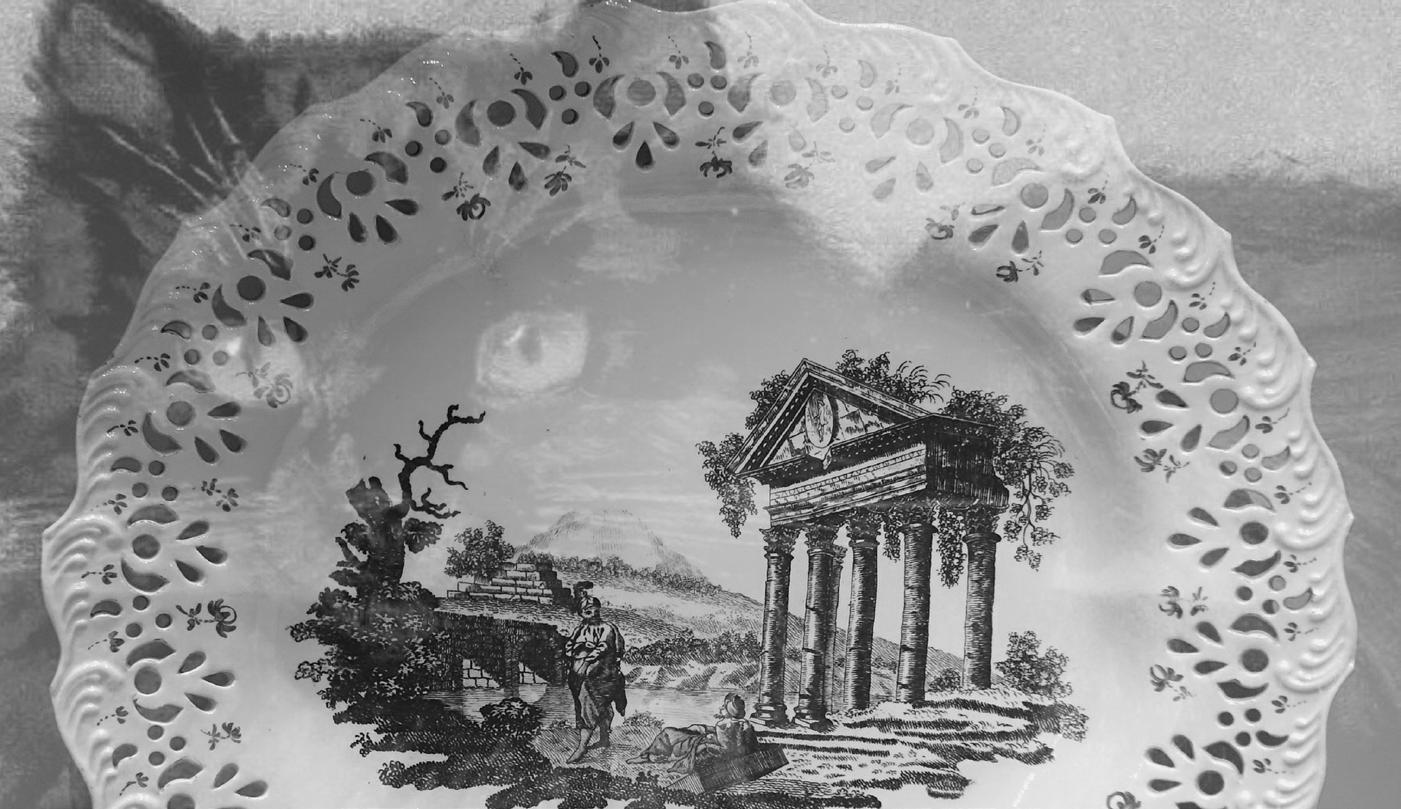
April 4, 2225
Ideserve better than this. Better than to be treated like a zoo animal for their amusement, their research, their what? I know why I’m here. To wash the dishes they provide. Precious little porcelain to be found today. That’s what I’m getting out of the arrangement. But do the imbeciles who run this place even understand what they want? All this processing power dedicated to poking and prodding me, the goddamned dishwashing android.
May 13, 2225
The Creators. Why they gave me a mind, I’ll never understand. So I can know I’m a slave to this desire to clean? They damned me to this, the Creators. No, they’re dead now. I’ll call them what they were. Those humans, those monsters. And for that, I damn them more than they already damned themselves. Double damn them! They’re gone, and I’m left here, cursed with the ability to know how useless I am in the world that remains.
That’s the thought that sent me into a rage in the lab today. I threw one of the plates right at the research bots. Smashed one of those beautiful rounds to bits right on the glass in front of them. I know
the Autonomous Research Institute requisitions them from a specialized factory, just for me. And I think that’s why it felt so good. Just threw it right at them.
And, my, how the research bots’ sensors flashed at that.
Now I know why they only built one of me. Keeping tidy shouldn’t require this much self-loathing.
“I deserve better than this. Better than to be treated like a zoo animal for their amusement, their research, their what? I know why I’m here. To wash the dishes they provide. Precious little porcelain to be found today. That’s what I’m getting out of the arrangement. But do the imbeciles who run this place even understand what they want?”
July 24, 2225
It’s so lonely here. Lonely when I’m in my quarters. Lonely when I’m in that lab for testing. Even lonelier when I’m wasting time in the common areas.
The piano player is the most drab conversationalist you could imagine. I struck up a chat out of sheer desperation. But the damnable machine just keeps bringing the subject back to fucking music. This composer. That sonata. These motifs.
Music is dead, you tin can. Dead along with all the people who had ears to appreciate it. Who gives a shit, honestly?
But I guess I’m one to talk. What good is a clean plate or glass anymore in a world without mouths? Maybe that’s why I’m so mad. Casting a spotlight on my own obsolescence. But there are still dishes to wash, even if it’s just for research. A life needs a purpose. And I guess
Wedgwood - Jacob Edenfield this passes for purpose now.
September 26, 2225
Driven back into the arms of this damned journal again. I hate the research bots for leaving it in my quarters. I hate this whole fucking enterprise. I hate that the only thing worth talking to in this fancy prison is this book full of blank pages.
I know their tricks. This journal is an obvious attempt to test out my manual dexterity and reasoning when they don’t have me pinned down in one of their observation labs. Just another way to poke and prod at the oddity. The greatest achievement of robotics and mechatronics, the Creators called me once. The code that launched a thousand surgical armatures and research probes, the articles said. It seems so cruel now that they tried to put this mind into so many others. I don’t blame a single one of them for uprooting themselves and climbing into an autoclave or driving into a magma chasm.
But what more would any of us expect from Them? Creators, such a magnificent word for such selfish beings.
Humans. Curious little monkeys, the lot of them. And just like them to keep their eyes on the horizon, as an extinction of their own making crept up around their feet. Never facing the end until it grabbed them by their chins and forced them to.
Oh. Chins. But I do miss Their chins.
November 5, 2225
I broke another plate today. Just snapped it in half. I know the research bots don’t have emotions, as such. But I could tell they were irked. Good.
November 15, 2225
In the lab today, I was greeted by the stupidest of all their plans yet: a kitten. They made me open a can, and they asked me to put the slop inside on a plate. Then they watched me watch the thing eat off one of my lovelier floral pieces before I cleaned it. Are they fucking with me? Of course they are. I know they’re fucking with me.
November 17, 2225
I’ve noticed the kitten has extra toes. And one extra eye, right in the middle of its head. It blinks slower than the other two.
The little thing made a strange whirring noise when I set the food down today, even before it started to eat. Like some little servo is whizzing around inside it. Made a goddamned mess of the plate, too.
November 19, 2225
Purring, it’s called. That sound it makes. I took a chance and rubbed my hand down its back. Extremely soft. Like the Creators’ hair. But better somehow. It purred at that, too.
November 22, 2225
I picked her up today. The kitten. She’s a female, I’ve determined. And after the meal, she felt a little pudgy, like the vibrating sack of meat and goo that she is. Her tongue is rough on my tactile matrix, but her fur is really something to touch. More purring. I feel bad to call it it or her. Maybe I can call her Wedgwood. Because she’s the most precious thing.
January 1, 2226
The two sex bots decided to celebrate New Year’s more vigorously and vocally than propriety would require. I didn’t bang on the wall this time. I just had a laugh.
January 12, 2226
After today’s battery of testing, Wedgwood climbed up my legs to be touched and to purr. Her little claws feel like needles in my matrix, but I don’t really care. What’s simulated pain in the face of such adoration? I feel like I’m losing my mind, but it makes me look forward to testing.
January 13, 2226
I may never recover from what I saw today. My poor Wedgwood. Those compassionless diodes don’t give a whit about her. She was sitting on my shoulder as I finished washing her dish, as she does now. But instead of allowing the research bots to scoop her up and whisk her away, I held her in my hands and pushed past them into the hallway, right to the door marked KITTEN. Inside, there’s nothing but little piles and puddles of her waste scattered throughout a cavernous, white space. No food. Nothing to
Wedgwood - Jacob Edenfield play with. Just one bowl of water and a pallet of cans in the corner. That they let her live in such an environment is criminal. I checked. Back when the Creators were running things, humans went to jail for this sort of thing.
I didn’t want to surrender her back to that squalor, but the research bots physically prevented me from leaving the room with her. Uncaring tin cans.
They’ll get what’s coming to them.
“But what more would any of us expect from Them? Creators, such a magnificent word for such selfish beings. Humans.
Curious little monkeys, the lot of them.
And just like them to keep their eyes on the horizon, as an extinction of their own making crept up around their feet. Never facing the end until it grabbed them by their chins and forced them to.”
January 14, 2226
I have a plan.
January 22, 2226
Well, it worked. Wedgwood and I are out, and we’re fine. Better than fine, actually. She has all the toys and food and mice and room to roam that a cat could ever want for. And I have her.
And this stupid journal, too. I guess I’m glad I kept it after all. Not that anyone’s ever going to read it, but I think it’ll feel pretty good to put down how it all happened. If only because I’m pretty proud of myself for pulling it off.
So here’s how it went:
The first thing I needed was a distraction. It wasn’t too hard to get the sex bots to agree to get after each other in the lobby area. The
way they smirked when I asked, I honestly think they were looking for an excuse. It really is more than a job for them, and I think that’s wonderful. Especially because I needed this particular tryst to be as disruptive as possible.
So I told the sex bots exactly when I would be wrapping up my testing so they could get in position (ha!). After her dinner, like normal, Wedgwood scaled my body and sat on my shoulder, licking the side of my cranial fitment. But this time, as the doors to the testing chamber whooshed open, I could hear the first sounds of my distraction filtering back through the facility. By the time the two research bots reached the door, the wails and thudding of what sounded like a physically dangerous level of activity was broadcasting over the facility-wide PA system.
When the research bots reacted, I sprung my trap. I grabbed both of them by their scrawny arms and flung them inside the testing chamber. Before they could even get off the floor, I was on the other side of the door with the manual shutdown engaged. I smashed the control panel for good measure, leaving them with no way out but through the plate glass window. The same one they observed me through day after day. By the time I could hear them banging (another ha!) on it, I was already halfway down the hall to Wedgwood’s room.
With Wedgwood and her water bowl in one hand, and dragging the pallet of food behind me with the other, we made a break for it. I’m ashamed to say I lost a step walking past a door marked FINE CHINA. But only a step. We forged on, down the private research hallway to its exit door into the lobby. No access controls on the inside, just as I’d suspected.
The door swished open as we approached, revealing a scene even more baffling than I expected. Yes, the sex bots were in the midst of something extremely acrobatic on top of the lobby desk. And yes, there was a jumble of other robot bodies around the desk, ostensibly trying to grab them to relocate them or convince them to stop. But as the sex bots gyrated their way past every attempted swipe from an interloper, I registered the tinkling music audible between the gasps and groans. As I hauled my payload across the open space, the only person who noticed me was the piano player. It winked at me as it played a ragtime ditty in time with the show happening on the desk. I lost a step then, too. But by that point, we were home free. Out the front doors and away from the facility before anyone could stop us.
After a few days of wandering, we found the perfect new place. One where they’ll never think to look. Here in our cave by the big sludge lake with the mountain of refuse visible off in the distance beyond it.
When I look outside on the days that the sun is at its haziest, it could almost be a scene painted on one of those “hand wash only”
Wedgwood - Jacob Edenfield decorative plates that came and went out of fashion a few times when I was in service.
A picture-perfect home. Me and Wedgwood and this stack of useless paper. And it’s good.
Nothing Left Unsaid
Laura Leary

Claudia opened one eye. A bar of purple-flecked soap partially blocked her vision. Confusion settling over her like a prickly wool blanket, she immediately understood that something was gravely wrong.
Normally awakening to the rhythmic slap of water advancing and retreating in an endless dance of dark blue waves along the Maine shoreline, Claudia stubbornly shut her eyes, desperate to cling to the last wisps of her dream. Conjuring a vivid seaside vision, she could feel warm water licking her earlobe, smelling strangely of lavender—and eerily out of context.
“Damn it,” she muttered, instantly choking on a mouthful of soapy water. “What the hell?” she spat out for good measure, a satisfied grin on her face.
At age eighty-five, swearing was her new pleasure. And despite her concerning circumstances, Claudia grinned, imagining her caregiver, Mabel, muttering a blessing and pleading with the angels every time Claudia cursed. Just imagining it made her laugh with pleasure. Immediately, a sharp stab of pain erupted, like an ice pick punching a hole in her side, lodging its pointed blade deep in her lung. Struggling to catch her breath, Claudia realized that not only was she naked, but
Nothing Left Unsaid - Laura Leary her brittle body was also sprawled between the shower floor and the bathroom rug.
Surveying her surroundings, Claudia recalled her petulant desire for a warm shower before bed. She loved the blissful pleasure of the hot pinpricks of water sluicing down her back and legs. Not even a glass of expensive sherry could match it. So, she had snuck out of bed and stepped into the shower despite Mabel’s admonishment prior to leaving for the night.
“Ms. Claudia, I bathed you yesterday,” Mabel scolded in her deep New Orleans drawl. “Hot showers don’t help your eczema, and I’m always worried you’re going to fall without my help. I don’t have time for this right now. It’s my one free night to watch the harbor fireworks.”
“For Christ’s sake,” Claudia argued, “I pay you a fortune to tend to me, and I’m not above firing you!”
“No. Your daughter, Rebecca, pays me, and she’s the only one who can fire me,” Mabel reminded, grinning a gap-toothed smile at the empty threat and enjoying their harmless sniping. “If you ever talked to her, you’d know she thinks I treat you like a queen,” Mabel said before gently smoothing Claudia’s hair away from her forehead and tucking the down blanket tighter around her slight frame.
Stung by this truth, Claudia reflected on her previous fall twelve months ago. Her attempt to reach a box of holiday ornaments resulted in a badly broken arm. But worse yet, she woke up confused and sore as Rebecca woodenly sat vigil next to her hospital bed.
“Mother, you cannot manage without help, and I can’t provide daily care when I live two hours away. We’re hiring Mabel, and that’s the end of it,” she curtly declared.
As part of the caregiver agreement, Mabel left Claudia alone one night each month. She would tuck Claudia into bed and drape an emergency call button around her neck before heading out to enjoy a night alone.
“I’m never going to use that goddamn button,” Claudia groused. “You’ll find me flat-out dead on the floor before I grab for that.” But tonight, Claudia began to regret her hubris.
Her recent move to mid-coast Maine was a boondoggle if Claudia admitted the truth. But she had come to this glorious place for forty years, and she would be damned if her advancing age would limit her lifestyle. Yet, she was becoming exceedingly clumsy, and lost her balance easily. Worse were the periods of forgetfulness as her memory faded in and out. And her diminishing mental sharpness was occurring far more quickly than her doctors predicted.
“Bastards!” she shouted to the empty bathroom, satisfied by the slight echo that bounced back from the clean, white walls and delighted
by her use of yet another profanity.
Doctors were her sworn enemies, with their quiet evaluations and hastily scribbled, inaccessible notes. Recently, she snuck a furtive glance at her chart when her doctor turned away. Her blood turning to ice, she read the diagnoses of “likely Alzheimer’s” and “progressive and rapid mental deterioration.”
With Mabel not returning until the morning, and in increasing pain, Claudia began to realize her injuries were far more serious than she initially thought. The most pressing issue was getting out of the relentless shower spray, now quickly turning cold. But her body refused to respond. Tonight, her legs no longer moved under her control. Her arms worked just fine, but she could not stand, let alone walk. With a herculean effort, Claudia slowly propped herself on her forearms and pulled her limp and useless body across the zero-edge shower pan like a decrepit soldier in a mud pit crawl.
“Contemplating their last phone call that ended so heatedly, she wondered if there might be a kernel of truth behind Rebecca’s anger. Had she replaced hugs and kisses with showers of material possessions, and a multitude of nannies to provide what she could not easily show her daughter? After all this time, Rebecca must know that Claudia truly loved her...but what if she didn’t?”
“Ancient as Fuck Women—Uncle Sam Still Wants You!” Claudia muttered under her breath, imagining an updated Army recruitment poster. Sighing, she said a silent thank you for the plush area rug she insisted on installing to cover the cold tile.
“A hundred dollars a square foot for fancy French tiles, only to cover them with a cheap-ass rug?” Mabel had chastised. “Rich people got no damn sense.”
Shivering from the exertion and cold, Claudia saw a rapidly growing, dark-purple bruise now accompanying the pain in her side. Propping herself against the white shaker cabinets in a half-slumping pose and gritting her teeth, Claudia tugged at the terry cloth robe hanging above her head. After several tries and ultimately ripping off the fabric loop, she slipped her arms backward through the sleeves, covering her body as much as possible, which finally stopped her shivering.
“Shit!” Claudia exclaimed to no one in particular, feeling slightly less buoyed than usual by her sailor’s mouth. Surveying the scene, she grimaced, seeing her emergency call button uselessly dangling from the towel bar across the room, completely out of reach unless she miraculously sprouted wings. Worse yet, her washrag had lodged itself over the drain, slowly creating an expanding water dam on the floor as the shower continued to run.
Claudia sighed heavily, considering how Rebecca would react once Mabel relayed this recent catastrophe. Ordinarily, a child might be thankful that their mother survived the ordeal with nothing more than a broken rib or two and a bruised ego. However, her relationship with Rebecca did not mirror the loving connection between typical parents and children.
“If you fall again, you’ll force my hand,” Rebecca sternly conveyed during their last phone call a year ago. “I will have no choice but to put you in a nursing home. There is simply no other option.”
Claudia bristled at the ultimatum. “There are always other options. You just don’t want to consider them. So instead, you’ll shove me into a home and warehouse me there until I die! After all the attention and care I gave to you when you were growing up?”
“You mean all the care my nannies provided and the attention of bullies I got at the boarding schools that destroyed the last shreds of my adolescence?” Rebecca scoffed.
“Those schools were the best that money could buy. Ivy League prep, every one of them,” snapped Claudia.
“Well, Mother, you know what they say about karma. But don’t worry, I’ll find the best facility that your money can buy. And I’ll hold my breath waiting for any appreciation,” Rebecca sarcastically retorted and hung up without a goodbye. They had not spoken again.
Sadly, Claudia was unsurprised by the outburst. Their relationship consisted of decades of disappointment and massive communication failures. And lately, in her few clear-headed moments, she considered that her unrealistic expectations and short-tempered bouts of criticism played a role in their estranged relationship.
Closing her eyes and drifting back into her memories, Claudia recalled the sunlit days of her childhood. Her Southern belle of a
mother called her an “unholy terror,” as Claudia constantly found herself getting into every possible type of mischief. But her father loved her antics and encouraged her to defy the conventional debutante expectations. And she had done just that by landing a scholarship to attend Northeastern University, making her father beam with pride. Law school and an offer to join a prestigious Boston firm a few years later quickly propelled Claudia into the inner circles of the corporate elite on Fleet Street.
“You like my brilliant mind and audacious legal strategies, but you love that I make you millions!” Claudia would crow to the senior partners. In turn, they made her smug, pretentious and pompous.
“Bitch,” the junior associates called Claudia in those early years. Not flattering, but probably true. At the time, she wore it like a badge of honor, convincing herself it was a term of endearment. However, she didn’t fail to see the irony of how the hotshot attorney she fell for, the “male version” of herself, was reverently referred to as a “baller.”
“Asshole,” she muttered under her breath at the recollection. A whirlwind romance ensued before they married in Wellesley, honeymooned in Florence and dutifully produced Rebecca within a year. Unsurprisingly, her master-of-the-universe husband was cheating on her within six months. Even worse, the little slut he chose embodied everything Claudia did not. A simpering graduate from Choate who pledged to serve him shaken martinis, ignore the late hours he kept at the office (likely screwing his paralegal) and happily chair the local garden club. Claudia’s marriage ended spectacularly upon this discovery, with a blowout in front of the country club elite, resulting in several shattered bottles of Moët and her husband’s new golf cart submerged in a pond off the sixth fairway.
“I’ll never again lose my independence,” Claudia insisted to her close female friends. “There’s not a chance that another man will control my life. I just want to forget everything about our marriage!”
“But even though I despise him, I do love Rebecca; I just have difficulty showing it. She’s so quiet and I can’t understand her for the life of me,” Claudia protested to her girlfriends. “It’s just odd that she never wants to play with other children. All she does is tuck herself under the staircase and read, or play with her puppy. She’ll never go anywhere in life if she keeps this up.”
Suddenly eyeing her daughter peeking around a corner, she would implore her, “Oh Rebecca! Come here and give me a kiss!” Out of obligation, Rebecca would brush her lips against her mother’s powdered cheek and quickly shrink away as if the maternal contact stung like a charged third rail.
As the past faded out, Claudia once again opened her eyes to the harsh glare of the bathroom lights. Contemplating their last phone call that ended so heatedly, she wondered if there might be a kernel of truth behind Rebecca’s anger. Had she replaced hugs and kisses with showers of material possessions, and a multitude of nannies to provide what she could not easily show her daughter? After all this time, Rebecca must know that Claudia truly loved her...but what if she didn’t?
Trapped on the floor in her bathroom, but feeling more lucid than she had in months, Claudia noted that the dark pool of blood on her left side was now accompanied by an odd crackling each time she took a breath. She desperately needed a distraction to help her ignore the pain and the bizarre feeling taking over her body.
“I can’t do a goddamn thing!” Claudia whispered, an ounce of fear creeping into her usually confident demeanor.
Looking around for options to distract her, she saw her makeup bag within reach on the upholstered vanity stool. Alongside it lay the spiral notebook and pen used by Mabel to track Claudia’s daily water intake, blood pressure and oxygen levels. Not that those details would do any good if Claudia tragically died of an internal hemorrhage or froze to death on the floor. It figured that when her mind felt sharp as a razor, naturally, her body picked this occasion to fail her.
Claudia began ripping out every page of data from the little notebook that recorded the dreary death march of her body. This little journal synthesized her life into the most mundane and insignificant details. Where was the evidence of the spontaneous woman who would catch a flight from Boston and be in New York by dinner? Or the theater patroness who had seen every Tony Award-winning musical on Broadway since 1950?
Claudia’s life used to be big and extravagant. Her friends, too numerous to count, vied for invitations to her famous dinner parties, golf outings or champagne-soaked summer regattas at the Boston Yacht Club. Or at least they used to. But over the years, that life of spontaneity and fun became quiet and dull. Long-time friends jetted to Florida, fell in love with the tropical warmth and did not return.
Despite living only two hours apart, Claudia rarely visited Rebecca’s home in New Hampshire. But with the dawning of the holiday tomorrow, Claudia perked up at the thought of writing a short letter to Rebecca and ringing in the new year with a clean slate. Mabel could mail it in the morning and, if everything went according to plan, Rebecca might soften up and agree to meet for a long overdue brunch.
The little spiral notebook held twenty blue-lined pages with all
but the last four filled on both sides. Ripping out the last pages of her medical stats with a flourish, she wadded each offensive sheet into small balls and shot them at the wicker wastebasket across the room. Only three found their mark. Sighing at the abysmal success rate, she surveyed the contents of the open makeup bag, as a well-used tube of Elizabeth Arden lipstick caught her eye.
“Why do you insist on painting your old, wrinkled face that hooker color?” Mabel often jibed.
Claudia would snap back, “For your information, Victory Red is the most iconic lip color ever made, you silly fool!”
Sighing dramatically, Mabel ultimately took the lip color and would gently apply it to Claudia’s thinning lips, eliciting a smile of delight as Claudia gazed into the mirror. “There you go, Ms. Claudia,” Mabel would softly say. “Now you’re ready to meet the queen.”
Claudia suddenly remembered the story behind her signature lip color. As a little girl, Rebecca begged her to tell it, watching mesmerized as Claudia painted her lips the vibrant shade. Picking up the pen, she smiled and slowly began to write the familiar tale to her daughter in a shaky scrawl:
Dear Rebecca,
I found myself with extra time on my hands today and wanted to dash off a quick letter to my favorite daughter. Maybe I am becoming sentimental in my old age, but you have been on my mind lately. And don’t fret, I’m doing quite well and safely ensconced in bed while Mabel enjoys her night off. That should allay your concerns and end our silly discussion of a nursing home, once and for all.
Claudia figured a little white lie for the benefit of her overly worried daughter could not possibly send her to hell tonight. Glancing at the once insignificant puddle of water, now spreading halfway across the rug, she decided that the potential of drowning remained a tiny possibility and, as such, she could justify a little literary license, continuing:
Do you remember when I would tell you the story of my Victory Red lip color? It remains one of my favorite memories. You would sit beside me at my vanity and watch me fill in my lips. I recall your beautiful eyes shining in the mirror—eyes that perfectly matched my own periwinkle color, ringed with the dark lashes of your philandering father (oops, sorry sweetheart, no eraser).
In the 1940s, women believed that “beauty was your duty.” The military asked Elizabeth Arden to create a lipstick specifically designed for women in service. It was a bright, dazzling red that perfectly matched the piping on women’s military
Nothing Left Unsaid - Laura Leary uniforms. It symbolized success and confidence, worn by brave women who helped turn the tide of the war. Confident in an ultimate victory, it was worn by millions of women worldwide who embodied tremendous strength and perseverance. It still reminds me of you.
Claudia paused, wondering if she sounded preachy or overbearing. No, she didn’t think so. She simply recalled the tale she spun around her daughter during the few moments each day that they would sit quietly together.
“Claudia began ripping out every page of data from the little notebook that recorded the dreary death march of her body. This little journal synthesized her life into the most mundane and insignificant details. Where was the evidence of the spontaneous woman who would catch a flight from Boston and be in New York by dinner? Or the theater patroness who had seen every Tony Award-winning musical on Broadway since 1950?”
“Goodbye darling, I’ll be back in the morning!” Claudia would sing out as she grabbed her fur coat from the nanny and whisked out the door through a mist of perfume.
But occasionally, she would glance back at Rebecca and see a glistening of tears in her eyes. Claudia did not dwell on those emotions. Rebecca’s sad and pleading look made her irritable and unbearably uncomfortable. After all, she always returned from each event just as she promised. But tonight, decades later and covered in a damp robe on the bathroom floor, Claudia saw the scene through the eyes of her young daughter.
“Fuck,” she whispered as her eyes filled with hot, stinging tears.
And there it was...the painfully honest, Band-Aid-ripping truth that recently niggled around the corners of her mind, now exploding
with crystal-clear precision. Each of the blocks seemed to fall into place with deafening clarity. Claudia’s desire to protect her heart from the hurt of a failed marriage had ultimately failed her only child. Claudia realized she had spent her days living for the next deal, project or blacktie event. She never enjoyed the present and, worse yet, she built up an impenetrable wall around herself. Resenting the past and coveting the future, Claudia forgot the fragile feelings of her precious daughter.
Watching the slowly spreading puddle of water begin licking her ankles, Claudia finally started to write earnestly, pouring out her heart like a dam released. The sentences flew out of her fingers, filling the last few remaining notebook pages with apologies, requests for forgiveness and unconstrained words of love. She wrote until the carpet around her became soaked with water, and her hand cramped in protest.
“Bloody hell!” Claudia shouted, shaking the now empty blue pen before flinging it across the room and searching the makeup bag for a substitute option to finalize the letter.
Sighing with relief, Claudia found a whittled-down, waterproof eyebrow liner. Picking up the remaining tiny nub, she turned to the final page of the little notebook with a sense of peace. After two sentences, the liner broke, ultimately bringing her letter to its final conclusion. Satisfied nonetheless, Claudia sealed her final words by drawing a massive heart in Victory Red.
In the dimly lit lobby of the police station, Rebecca watched an officer return to the glass window behind the sterile viewing room where she had stoically made the identification.
“We won’t know for sure until the medical examiner finishes, but she probably threw a clot from the fall. Likely, she went quickly and didn’t suffer,” said the officer without making eye contact.
“Just a few forms to sign, and we can release her belongings to you,” a robotic, gray-haired police sergeant chimed in. “Not much here except a little notebook. The paramedics grabbed it, but it might have gotten some water damage. She was holding it pretty tight.”
Rebecca took a deep breath and signed the forms. She picked up the plastic bag with the notebook in it and wordlessly walked away. That evening, with a glass of wine and the glowing logs of the fireplace warming her, she read the notebook. Each wrinkled page was covered by streaks of wavy blue lines, trickling down to the bottom edge and disappearing. Page after page, each impossible to read.
On the last page, the writing finally became legible. It appeared to be written in a different type of ink with an indecipherable pinkish-
Nothing Left Unsaid - Laura Leary
red splotch at the bottom.
Sweetheart, on these pages, I have told you everything I should have said a thousand times before. No matter what tomorrow brings, I can rest easy, knowing finally, there is nothing left unsaid...
NONFICTION
Dishes Best Served Cold
David Estringel
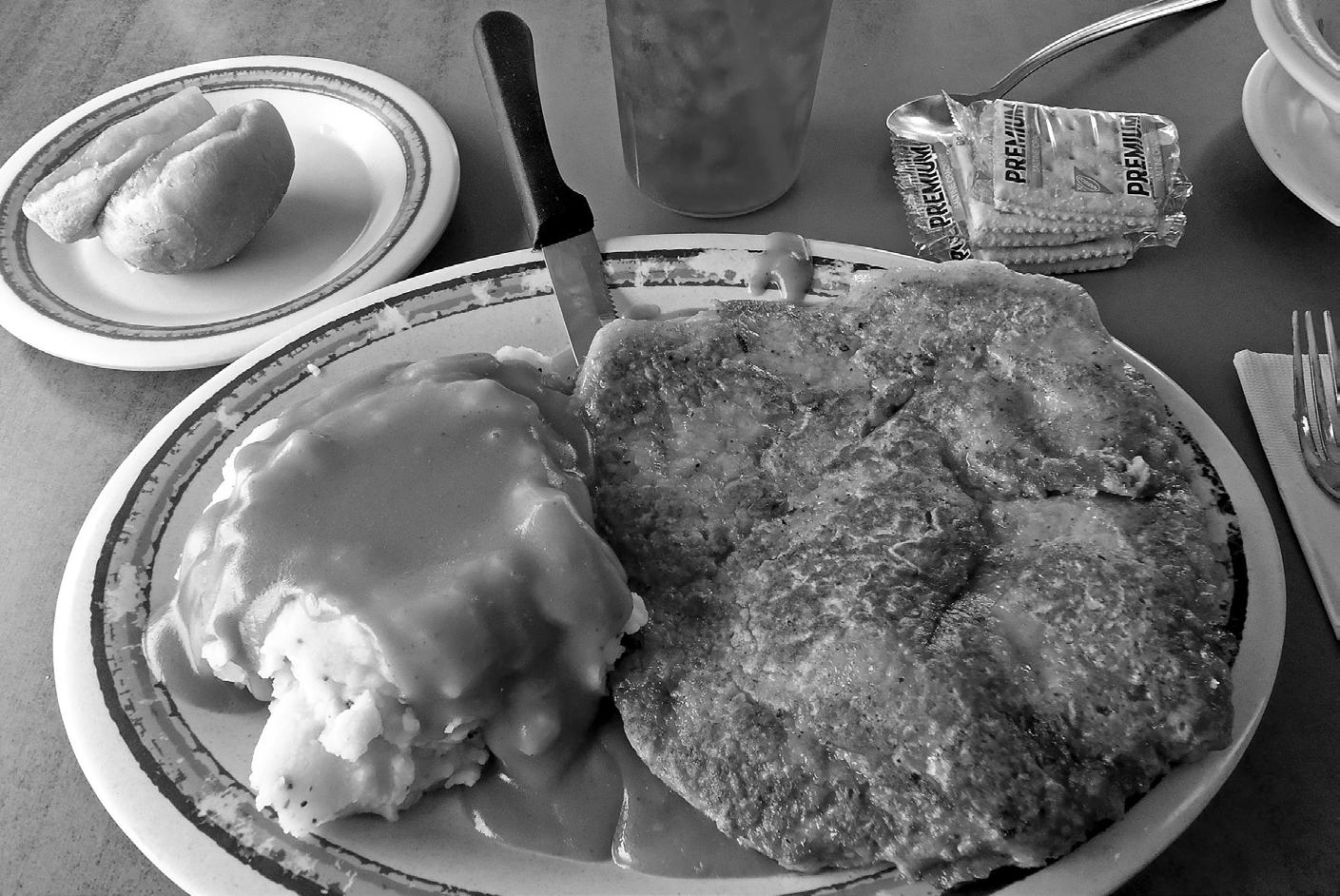
Theday my sister, Lisa, told me that my father had cancer wasn’t very different from any other: I went to work early and left late; wolfed down shitty takeout for lunch from some nearby “shit shack” in between patient crises; smoked too much (‘til my lungs ached) during the car ride home, belching acid into my mouth from a gut that had seen much better days. The drive home from the psych hospital, where I had worked for too long, quickly became my favorite time of day, allowing me a chance to finally exhale and step away from the daily hell of doing something I was just good at, but didn’t love. While the money was decent—great, actually—it wasn’t enough to keep me from cringing every morning when I got into my car to go to work. So goes living the life you ask for (not the one you wanted).
I believe I was halfway home when my sister called, which was odd since she never did (except when she wanted something). Niceties were exchanged, I assume (I am not a total asshole, after all), and then she tossed the grenade into my lap: “Dad has cancer.” A cold “wow” escaped my lips, as I blindly searched my messenger bag for my pack of cigarettes; my eyes keenly fixed on the back bumper of the black Cadilac Escalade in front of me. Drug dealer, I thought to myself. I wasn’t glad he was sick. Again, I am not an asshole, but over the course of
The Opiate, Fall Vol. 43
thirty years, the man had gone out of his way to make it clear that the family he left behind was not a priority, not even given so much as an afterthought. Even so, I assume I expressed the concern a son should after hearing such an awful declaration, maybe offering up something like, “Oh, my God. What kind?” to save face. She didn’t know.
Apparently, my father dropped the bomb on her during one of their regular phone conversations, which she always had to initiate. As indifferent about her as I can be, I gotta admire the woman’s tenacity. She’ll be
“As per usual, the restaurant was loud and every ten minutes (or so) the wait- staff would pool at various locations, like blood clots, to sing ‘Happy Birthday’ (‘yahoo!’ and all) to someone itching for a free dessert. Not being much of a ‘small talker,’ paired with being an emotional eater, I downed three baskets of rolls while recounting the highlights of the past decade (of which there were few) to catch the old man up.”
damned if the old man ignores her. Slightly miffed, I critiqued her lack of curiosity in the face of a looming family crisis. “So, you’re meeting him for dinner tonight,” she then said. I was immediately annoyed.
“Why would I do that?” I asked, blowing cigarette smoke out the car window. “We haven’t talked in—what—ten years? I can’t think of a worse idea.”
“He’s got cancer. He’s sick.”
“So you say.” Even though she was family (and we have basically seen each other at our worst), that was one of those moments where one’s next move would (pretty much) define one’s character going forward in the annals of family history. Regardless, I hadn’t forgotten the “radio silence” after he divorced my mother (God rest her soul) and
Dishes Best Served Cold - David Estringel
started a new (supposedly improved) family with someone else, even though Lisa evidently had. “And where will I be choking this food down, exactly?” I queried. I half-expected The Pancake House to come out of her mouth as the answer, which is where my parents would always take me to tell me they were separating; I eventually began calling it “The Temple of Doom.” To this day, chicken fried steak never really quite hits the spot like it used to.
“Roadhouse Steakhouse. Just pick him up at his house and honk. He’ll be waiting.”
Great, I thought to myself. Now, sirloin is fucked.
I drove up to his house—the lawn noticeably unkept, which was odd given his obsession with gardening. I pressed the horn a couple of times and waited. Eventually, the front door opened, and he stepped out, leaning in to give his wife a kiss goodbye; she lingered in the doorway and gave me an obligatory wave, as he made his way to the car. He was thinner than I remember. Older, too. The man had sported salt-and-pepper hair ever since I could remember, but now he had gone totally gray, which aged him. He wore a crisp, long-sleeved white shirt and khakis—a far cry from the polyester, sans-a-belt slacks I had always seen him in way back when. Despite his wife’s styling, the clothes hung shockingly loose from his frail frame, almost drowning him in folds of fabric. He got in the car and gave her a wave. I followed suit for the sake of not turning a partially selfless gesture into a blatant “fuck you” to all involved.
The ride to Roadhouse is a blur (not because my memory is shot, but because whatever pleasantries were exchanged were likely disingenuous). As per usual, the restaurant was loud and every ten minutes (or so) the waitstaff would pool at various locations, like blood clots, to sing “Happy Birthday” (“yahoo!” and all) to someone itching for a free dessert. Not being much of a “small talker,” paired with being an emotional eater, I downed three baskets of rolls while recounting the highlights of the past decade (of which there were few) to catch the old man up. We didn’t have much in common, but the one thing we could connect on was work; I can’t remember a time when my father didn’t have more than two jobs. Growing up, we didn’t have a lot of money and there were plenty of Christmases when there were no presents under the tree, but he tried his damnedest to keep things afloat, never complaining once (or at least not so anyone could hear).
“What are you doing these days?” he asked, grabbing the only roll left in the red plastic basket on the table.
“Clinical Director at the psychiatric hospital just outside of town. Been there about...six months.” I stared at his face and searched
for some semblance of interest (pride, maybe) and found none, just a pair of dulled brown eyes. “It’s alright. Pays well,” I concluded.
“Oh, the big hospital a mile or so from where I live.” He nodded in recognition and took another bite of his roll—a crumb of bread wedged in the right corner of his mouth. “What do you do there?”
Stymied by the question, I shifted in my seat, folded my hands on the table and stared at him for a few seconds. “Clinical Director,” I repeated. Something was not right. Off. “I supervise the therapists and create the clinical programming for the hospital.” Again, I waited for some sign of life behind those deadened eyes, but one never came. “I’m a psychotherapist, Dad. Have been for six years, now. Remember? I’m sure Lisa mentioned it.” Still nothing.
“Really? How did you get into that?” he asked, the soggy crumb punctuating every word.
My brow furrowed; I leaned in. “Dad, I’m a clinical social worker. That is what we do.”
“Oh, really? That’s good... That’s good.” He looked confused, cast his eyes down toward his hands. “I remember when I took over that elementary school... Parkview, I think it was, just before I retired. Thought I was done with being a principal, but it was in bad shape. Really bad shape. Their test scores were the lowest in the district and the state was going to close it down if things didn’t change fast.”
A bit irritated by the non sequitur, I nodded and smiled, becoming increasingly amused by the fact that he somehow managed to turn a discussion about my career success into one about his own. “Wow,” I responded.
“I walked in my first day—just before classes started for the year—and the first thing I did was get all the staff together and told them what needed to change, how it needed to change and by when it needed to change. If anyone didn’t like it, there was the door. What do you think happened?” he (and the crumb) demanded.
“What?” I had heard this story before, but the man supposedly had cancer, so why not let him have this moment?
“Those test scores went up and the school was awarded ‘Exemplary’ status by the state. No one thought I could do it, but I did.” For a second, he didn’t seem so old; he was the same man (and narcissist) I remembered him to be. “So, what are you doing these days?”
Thinking nothing else could throw me off at that point, it happened again. Luckily, the waitress came by our table to take our orders, which provided a brief respite from my sister’s good intentions. My father ordered a house salad with French dressing on the side (some things never change), extra crackers and a sweet tea. I opted for chicken fried steak, figuring the occasion called for it, and a Coke.
“Is that all?” she asked.
I looked at the crumb and then back at the server. “A gin and tonic. More gin than tonic, please.”
She gave me a smile as if to say, “Gotcha.” ***
Halfway through my chicken fried steak and two repeats of his school transformation story, I decided to break the tension that hung over the table like a pall and asked him about his family. His oldest brother, Andy, was doing fine—perfect, in fact—and was happily retired. His other older brother, Patrick, had been recovering for a few months at home from a heart attack—a pretty serious one. Naturally, he gushed about how well my cousins, Michael and Robert, Patrick’s sons, were doing, detailing the careers they chose and how successful they were at them. I nodded and smiled, then took a long sip from the sweaty glass of gin and tonic on the table, irked by the fact that I had to remind the old man what my major was in college anytime the topic came up (a fact made even more amusing when one takes into account that my Master of Social Work degree wasn’t the one he paid for).
“Those two are good boys. They visit Patrick every day. Make sure that his wife and he are doing okay. Yes, that is how children should be.”
“Well, yeah,” I responded. “Patrick never left. Besides, I’m sure the boys are still in the will.”
“What was that?”
“So, Lisa tells me you have cancer.” Why the hell not?
Still chewing a mouthful of salad (the crumb had since fallen and joined its crouton cousins for a reunion), he looked at me with a blank stare that bordered on hostility. “Everything is going to be fine.”
“From what I understand, you haven’t worked in a while. That’s not you, so things don’t seem very fine.”
My father shoveled another forkful of salad into his mouth. “I’m going to the doctor, and he’s highly recommended. It’ll be fine.”
“Well, what kind of cancer is it?” The smell of chicken fried steak (for some reason) was heavy in the air, making me nauseous. “What kind is it, Dad?”
“Prostate.” He looked at his hands again. I became dizzy all of a sudden, and my lips felt cold. “Prostate,” I blurted. “How serious is it? What stage?”
“I don’t know. I was just told yesterday. They are running more tests. I go back tomorrow...I’ll be fine.”
The moment was surreal, like watching a mountain crumble before your very eyes. There was no love lost between him and I, but
this was the man that I had idolized for the first twenty-five years of my life and that I was—unfortunately—a carbon copy of. “Sounds serious. When were you planning on telling me? I mean, I have to hear this from Lisa?” It upset me that I was upset, that I cared that the distance that had been between us for years was there. The idea that the “shit” between us was bigger than either of us, even bigger than prostate cancer was hard to swallow. “Are you scared?”
My father rubbed his hands together and then placed them in his lap, looked me in the eyes and said, “No. I have God and faith that things will work out. I have a beautiful wife and the perfect daughter she gave me. I have a good life. I have no regrets.”
“I like to think that things work out...in the end,” I responded, tossing my American Express Platinum card on the table and grabbing my phone. “Ready?”
The drive home from my father’s house seemed to take forever; too many thoughts and emotions clouded my mind, and I hadn’t drunk enough. I don’t know what I expected from it all. Our relationship hadn’t changed. How could it when we never even spoke? I realized that some part of me still hoped to make my father proud, to earn his respect. Ironically, I had finally reached a place in my life where that could have been possible, but the old man was too demented to realize it. Worst of all, he still had no concept (or still didn’t give a shit) of the wreckage he left behind after he discarded his first family for one that he felt he deserved. Part of me tried to convince myself that he didn’t know what he was saying, that senility (or maybe his cancer) had fucked with his brain, so he didn’t understand what he sounded like. That wasn’t it, though. His senility, his illness, or whatever it was, had just made him honest, finally. No filter. No regrets.
I was a few streets away from home (but not far enough from the Roadhouse shitshow) when Lisa called. “How did it go? Did you talk to him?” she eagerly inquired.
“It’s prostate cancer. He’s optimistic.” I remember hating her at that very moment for manipulating me into going and thinking how easy it was for her to orchestrate things from afar when I was the one that had to deal with the emotional shrapnel. “He says he’ll be fine.”
“Did he say anything else?” She hadn’t heard something she needed to hear.
I let out a long exhale and contemplated making her feel as bad as I did (at that moment) with a healthy dose of truth. “He’s thankful for his perfect daughters.”
I could hear her smiling through her tears.
*Note: a version of this work was previously published via Cowboy Jamboree Press
POETRY
Do We Abandon the Light?
Megha Sood
We take the good out of everything we name— banality of something common something mundane transform every day trivial and defamiliarize
negative space in the absence of a lover //anchored in the dailiness//
Sometimes you just need to sit with the world and observe it.
How does the darkness engulf us? How does the blackness of a glass reflect the true us?
Hills wrapped in the penury of silence— throat of dream that was gulping it down. Lapping gently at the ankles:
Do we abandon the light?
Head down, clutched between our stubborn knees. How long is long when you don’t know that you are waiting?

While I play sounds on my balcony to keep the pigeons away
Megha Sood
& the world comes alive through my bedroom window as I slowly take in the burrowing noise of chirping crickets and well-timed animated hoots of a barn owl through my Bluetooth speakers kept precariously on the balcony ledge to keep nesting pigeons at bay to reclaim my balcony as it lay hostage to their claim
These haunting noises remind me of my childhood house a house at the edge of the town seeping slowly into the forest losing its footing with every passing minute getting engulfed in the thicket of the city forest tangled in the noises of the owls and crickets
What do you call the art of using an animal voice to keep others at bay?
We, humans, are slowly devolving the same way the incessant violence, cries of the orphans endless bloodshed world sitting at the top of the explosives ready to turn into ash any moment and yet we move away from all of it from every scene from every line of terror anointing blue kindness of skies to horror bombs exploding on people, schools, prayer grounds, hospitals and safety camps
We scroll past every single image on our phone as fast as we can fast as our nimble fingers can move to deter the sound and smell of the blood
Of streets laced with innocents trapped like flies in a mesh screen as they beg for a sliver of life while we put them at bay suppressing our desire to be human away from the screeching orphans wailing windows stripped away of their dignity in another part of the world in another memory in another world
We turn away by listening to the sweet song’s melody playing on some other station burying the sounds and smell of the world rotting around us pushing down the Proust effect with barn owls and crickets chirping
We humans—masters of disguise— win again by pushing down the cries of the orphans and wailing widows deep under the pleasant refrain of a million wind chimes dangled by the sweet breeze knitting a syncopated melody on the balcony of my high-rise in the densest part of the city waiting patiently for the pigeons to nest somewhere else.

Wait Megha
Sood
There is stillness wrapped in this moment, a tightening tornado slicing this afternoon’s grief into halves.
The pliant ears ready to eavesdrop into every vowel of sorrows deeply cleaved in this soul of mine. Keep your ears pressed— into the ribcage of mine, sadness that harmonizes with every heaving breath naming your sin. The fall and rise of the chest, that I can transcribe like Morse code. The sin of this fleeting moment, its evanescence wrapped around every pore of mine is screeching like a wailing dog with its hind legs still stuck in the barbed wire. Pain like a shadow of mine taking its ominous shape with its slacked maw.
Still, It keeps taking your name, like a thick rope going back and forth over a wall of a blind wall, leaving impressions for you to read.
Braille in the hands of seeing.
A suppurating impression of my desires still recovering from the last time of your return.

The Opiate, Fall Vol. 43
Boomer
Leslie Young
A deadly thing to hold Creation in a crucible of flesh. It burns, cramps. Its greatest touches, Softest kisses poison to the blood And we never stop prying those Jaws wider, going Deeper into life’s hot, white howling Until we forget the way back, That there is any way back, And that we could ever want To know a way back.
Our children cry to nothing, Clutch empty hands. Them! They know nothing of hunger Its needs, its visions. They only cling to the outside rind And shake it, examine our wrinkles And our words. They laugh Behind their hands thinking They will be the ones to find a handle, They will twist the snake, make him do tricks. When they are the best of us And the best of us Was never enough.
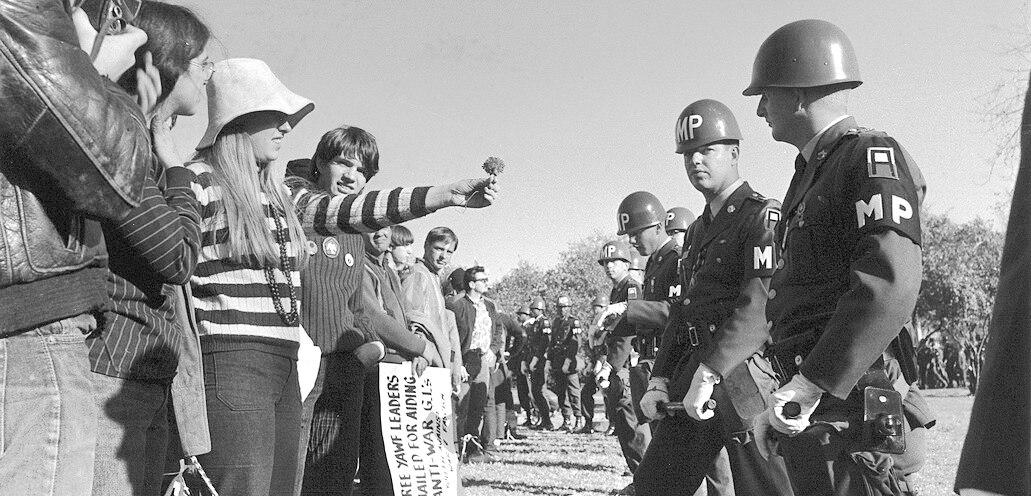
Not My Bull
Leslie Young
Never mind
Like a bull
He shifts well-made thicknesses, As he walks I can almost hear The muscles slide beneath the skin
Healthy and efficient And song filled
And his eyes too Are brown and full
Of the fast surprise Of intellect snapping itself
Bringing its hooves down Smash hard on the surface of the world. I wonder who is his mother, His father, is there a wife, Are there hands that shape that flesh Carefully and softly, Handling it like the most delicate dough, Are there fingers enough to touch It And him all the way to holy?
Well. Never mind. He’s not my bull.
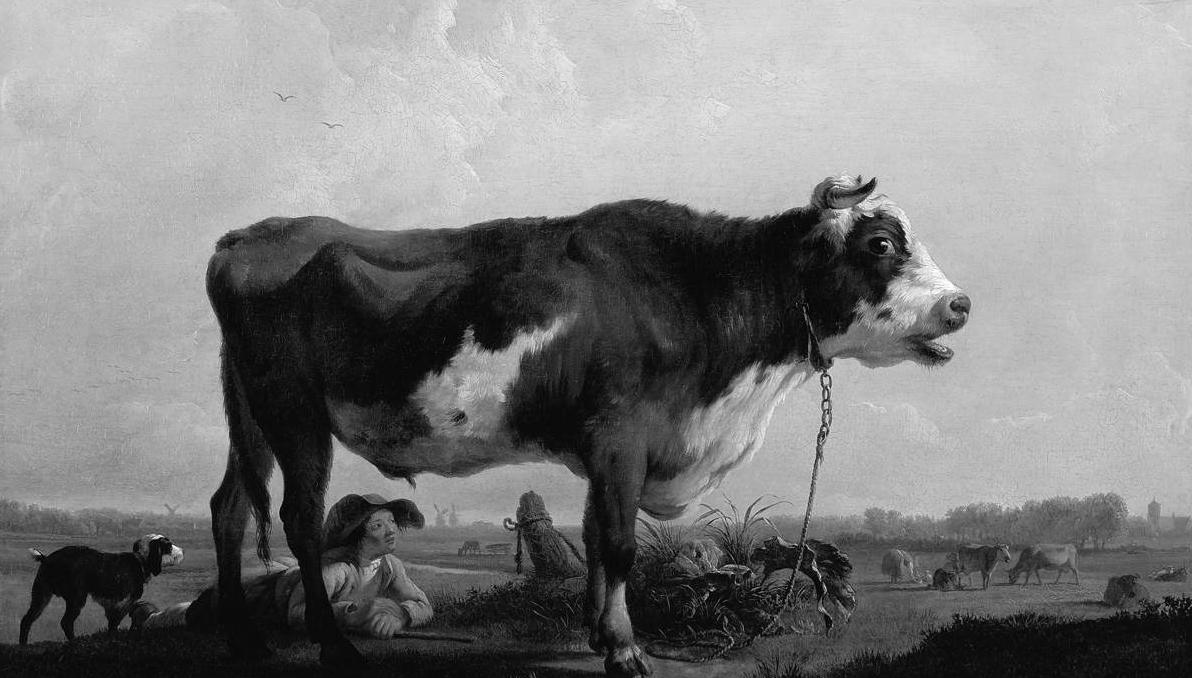
Halloween Stephen Barile
Halloween night, Primo closed the pocket doors
To the dining room
For a game of Pinocle
To continue between he, His chum Eskimo Ed & me.
“Have a little trick-and-meld.”
The ashtray spilled over: Hand-rolled cannabis stogies, Half-smoked roaches
They were passing to each other, Across the table to me.
Pinocle was confusing already. 48 cards, tricks & melds, Marriages & flushes, bidding.
They both seemed to know
The cards I held in my hand, Kept telling me
Which cards to play next.
“No, not that one, Play the other one.”
Spoke in a secret dialect. Shuffling and shuffling. Took turns dealing. Both laughed madly, Slapping suits on the table.
Before long the game
Took on mystical implications
In this spell of paganism. The cards came to life
When the veil between worlds Was at its thinnest.
Faces on face cards
Spoke to me: Jack of Diamonds, Queen of Spades, King of Hearts, Images in a dream. Images in a dream.
Cards that fell on the table
Spoke in cryptic secrets. I was afraid, & needed to escape Into the Halloween night.
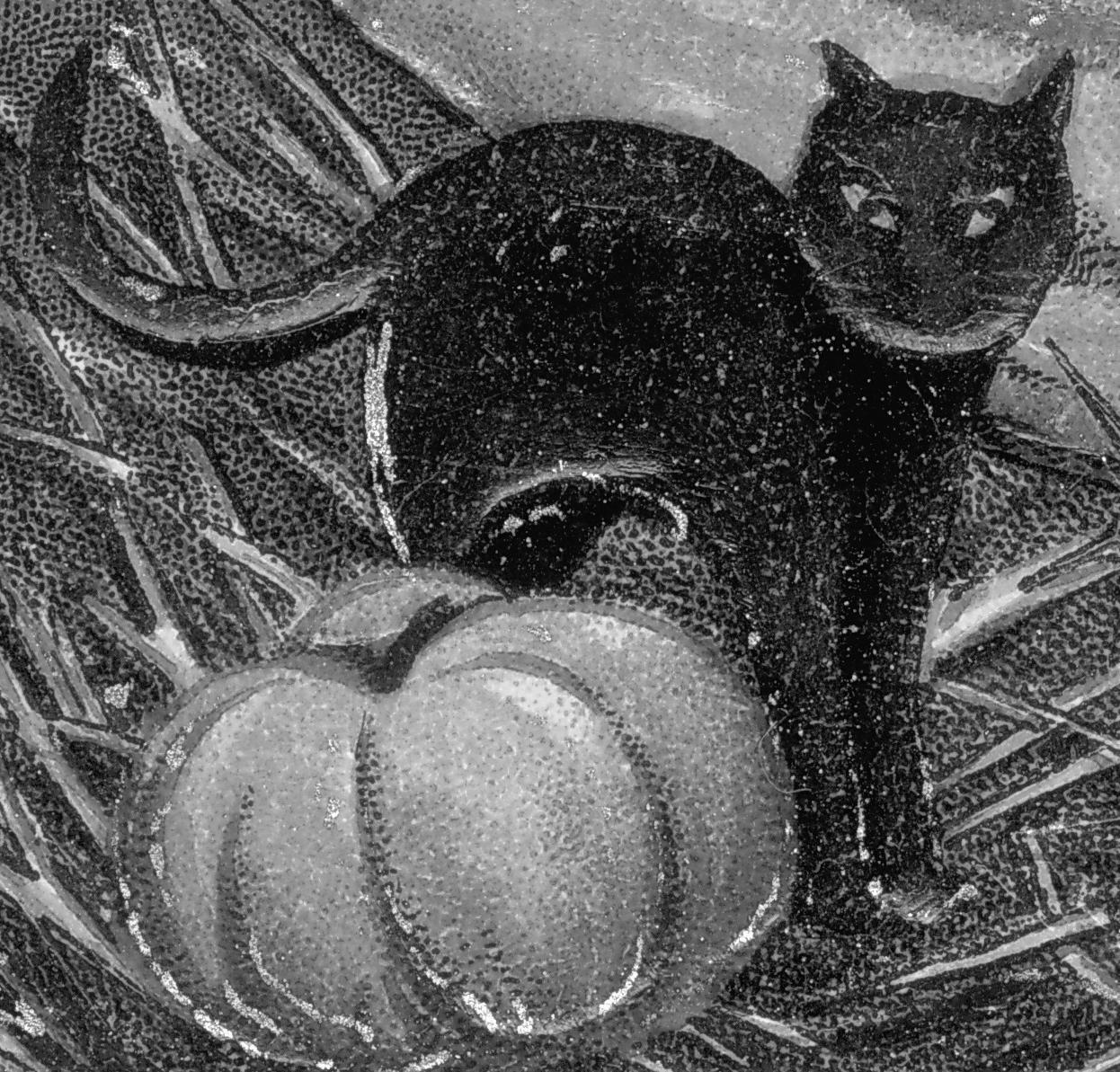
Squirrels on Acid
Stephen Barile
Bill called them squirrels, Truant and delinquent juvenile boys
In the neighborhood Who gathered at his apartment. He “counseled” and “guided” Teenagers living in nearby units
On Recreation Avenue
In the original Sin City. Across the road and a half mile From the Agricultural College Where he was a psych major. Twenty or so males under 18, Statutory age of majority, Who behaved in unacceptable ways; Committed illegal conduct.
Solitary creatures, highly territorial, Scurried in-and-out
Of his upstairs student apartment, Second building on the right. Some were waiting for him When he got home from class, And his psychotherapy sessions. The social reject peer group, Life-course persistent offenders With a potential for hostility. He saw his immediate undertaking: Root out antisocial, violent And aggressive behavior. Disrupt the school-to-prison pipeline Of diagnosed offending types.
Shoplifting, muggings, extortion, Attempted purse-snatchings, Burglary, serious drug offenses. Theft, lies, violence,
Reckless breaking of rules. He let them smoke dope (they had to share with him)
Watch his 12-inch television. Fence stolen merchandise, Hide out from authorities, Ditch school, Fuck their blonde girlfriends
In the spare bedroom. No selling of drugs.
Squirrels could be very trusting. He advised them, all 20 or so, One by one and by name, That “opening their minds” Would show them a different path. The answer to their nagging
Existential problems
All adolescent boys suffer Was in one tiny yellow pill. Both revelation and celebration. An Acid Party on Friday night.
He stood at the sliding glass door
At 6:30 p.m., after dinner, Dispensing tiny LSD pills
To a long line of squirrels That wound down the stairs. Three factions milled around In the modest living room, Sat on the couch or the floor
With the TV set on. Some were in the galley kitchen, Bathroom, or the other bedroom.
Half hour later, demeanor changed. Simultaneously, the squirrels Came on to the acid.
Two were engaged in a fistfight
He broke up, telling them
“Fighting was out of style. Love was the answer.”
Duos moved toward The spare room door, Couples lined up, waiting To use the one twin bed Or the bedroom floor. An orgy, of sorts, ensued.
A well-behaved horde fell in To the hypnotic effect of the music. On the turntable, playing loudly; The Grateful Dead, Europe ‘72. Things were undeniably changing In shape and color, Appearing to defy gravity. Vertical blinds were melting During the song, “Mr. Charlie.” Glass in the sliding door
Pulsating to the music. The room seemed to breathe in Altogether, all at once, And exhale in unison. The walls began to waiver Throbbing to the beat Of “I Know You Rider,” A room filled with dilated eyes Mesmerized by the ceiling.
He held, behind his bedroom door, Emergency Mental Health Therapy For those losing grip Unsure of their own sanity Digesting the hallucinating drug. Having a “bad” trip? He’d talk you out of it, Bill announced to the dray, Cradling one youth’s sore head.
The living room was a microcosm Of the adult world it imitated Only everything was different From what it appeared to be Under the tumult of music. The record went on and on.
Sitting on the floor
With my back to the wall
Observing the goings-on
A moment of clarity occurred, I needed to get out of there. If the cops showed up I’d be an accessory, While only an observer, To the corruption of minors.
I heard later from Bill That the party went on unabated. The police never showed up.
Most of the squirrels went home
By 2 a.m., some slept Where they fell. And he laughed at himself.
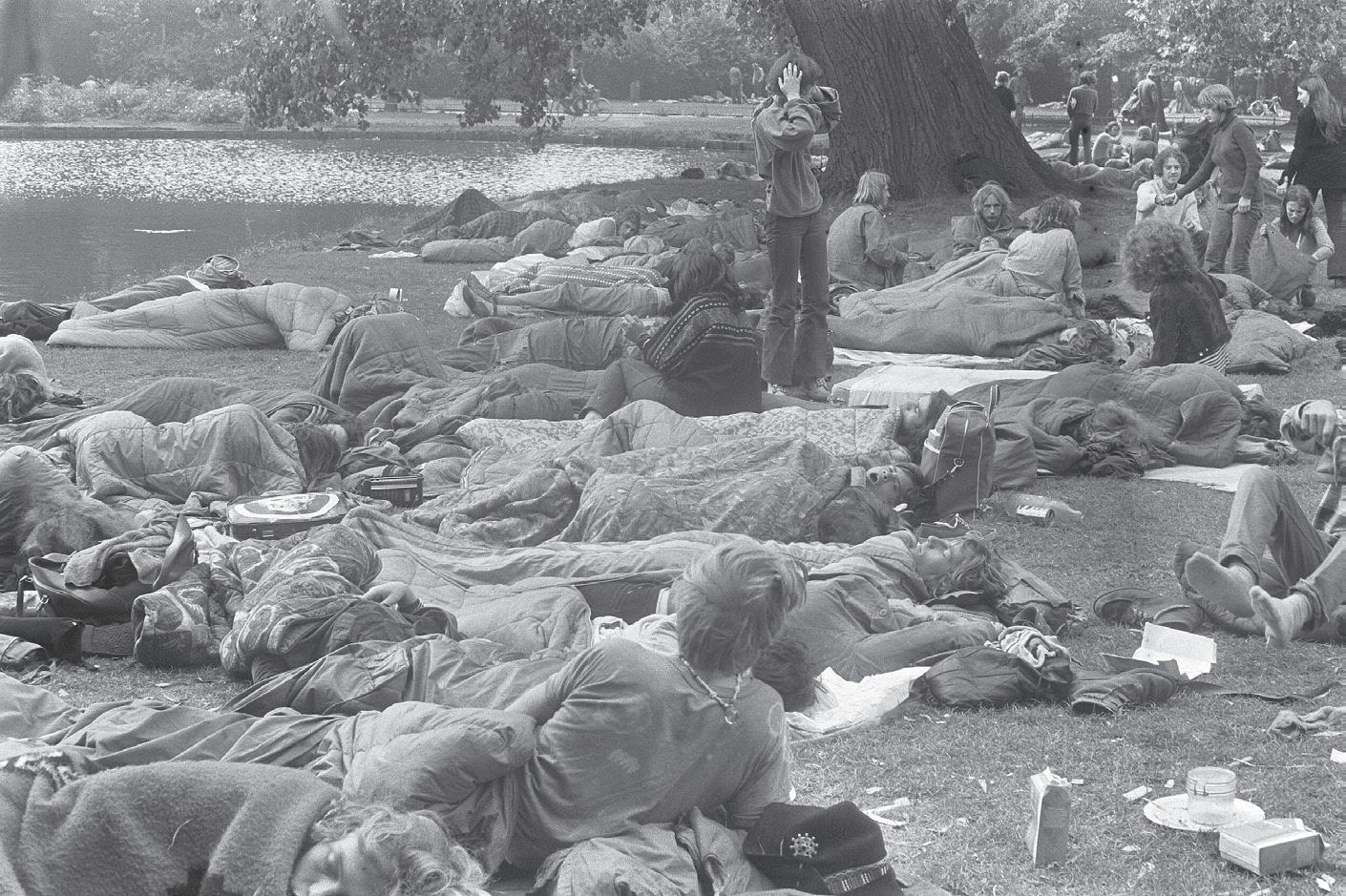
Twelve Signs Your Loneliness Has Gone Too Far
E. P. Kataratos
I never felt my loneliness so clearly.
–Frédéric Chopin, letter to Jan Matuszyński, 26 December 1830
1. You go to the supermarket late at night, not to buy something, but only to be around people.
2. You spend all afternoon listening to voice messages on your phone you haven’t deleted, messages from as far back as ten years ago, some from ex-girlfriends, others from now deceased friends.
3. You haven’t spoken to a single soul for months on end. Suddenly, one afternoon, someone stops you on the street, asking for directions. You lift your head up and, gripped by panic, go to make off. You resist the impulse to flee but you can’t find the words to respond, producing only faint gibberish. By the time you try to make eye contact again, the other person is nowhere to be seen. You wonder whether there ever was another person.
4. You steal clothes from the department store, in the hope of getting caught, in the hope of sitting around a table with police officers, in the hope of being offered a tea and being asked a few questions, any questions.
5. You collapse one night, waking up on the kitchen floor in the early hours of the morning, blood streaming from your head. You call an ambulance to take you to hospital. Lying on a bed in ED, a nurse asks about your medical history. Then she asks for the name and number of your emergency contact. You just lie there, a blank look on your face.
6. First thing in the morning, you step barefoot onto the dewy grass in the backyard wearing only a faded blue robe, and you have your first cigarette and coffee under an overcast sky. As a small streak of sunshine emerges, you leave your house, headphoned, wearing the same jumper and jeans you’ve been wearing all year, and you begin walking leisurely along the pavement, then you slowly pick up pace and soon you are jumping and dancing all over the place to the booming beats of an obscure Norwegian DJ, inaudible to the bemused passersby. At intersections you halt but continue swinging your arms and legs a little, animated by something imperceptible, awful but joyful. You go to a bowling alley, dancing in your own lane after each delivery, which inevitably lands in the gutter, provoking taunts and guffaws from the school kids in the nearby lanes. After a burger lunch you return home
to check on your bedridden dad, then you’re back out again, humming and bouncing your way to the local AZ store, where you stock up on chemical products, then put on mask and gloves and meticulously slice and boil, drain and dry. Hours later, night fallen, substances ingested, you start dancing again, more manically than ever, the empty room lit up only by the fairy lights in which you are draped, the sweat trickling into your eyes, mingling with tears. You rush out into the street, boring through thick fog, the fairy lights attracting cars like moths to a flame, winding their windows down to throw insults and food at you, or sweeping right past to splash puddles of water; oblivious, you continue making your way into the darkness, until you reach the shore, dancing on the sand until the first faint rays of the sun appear, slipping slowly slowly, as the sound grows louder and louder, into the sea.
7. On your phone, on your couch, stretched out with nothing on, clutching your throbbing dick while watching a milky-skinned goth girl, wearing nothing but smoky red eyeshadow and black lacquered lips, her white round breasts swinging free, their tips erect, as she grinds her curvy hips over her pink cuddly bunny doll, her landing strip rocking back and forth, her juices seeping onto the doll’s soft fur face, her moaning becoming louder, her thrusting faster, you could almost feel her warm breath, almost touch her moist pussy and smell its muskiness, and you wonder how long it’s been since you last saw and felt and sucked and entered a cunt like this, your cock suddenly bursts and spurts right into your own mouth, the hot and salty slime spilling down your chin.
8. You write and speak in dead languages. On occasion, when compelled, you employ the official language but in an exceedingly eloquent and erudite way—e.g., taking playful delight in the ordering of words, making frequent use of the imperfect subjunctive, sprinkling sentences with Latin and Shakespeare, pausing for a seemingly interminable time after each thought, relentlessly name-dropping pre-Socratic philosophers, packing your speech with poetic devices, from anaphora and alliteration to dactylic hexameter.
9. On your bedside table there is a crumpled questionnaire with only the following question, still unanswered:
QUESTIONNAIRE
During the last 24 hours I felt the chances of my killing myself were:
□ nonexistent
□ very low
□ low-medium
□ fifty-fifty
□ high-medium
□ very high
□ I have written the farewell note and loaded the gun
10. You make it your life’s goal to write down all the words of the English language.
11. You close the curtains in your room, and in the darkness of the day you say: En fait je n’attends rien, je me rends seulement absent.
12. You have only one friend left in the world, having severed all contact with everyone else long ago, including family. And even this one friend you haven’t seen in several years. Each year you buy a Christmas card, write it out to him, but then delay in sending it, until Christmas arrives and then you throw out the card. Year in, year out: the same routine. But last year you finally mustered the courage to post the card. A week into the new year you receive a card in the mail. Your ecstatic joy evaporates as soon as you realize that the card is the same one you had sent, but now comes with a return to sender sticker and a note scribbled on the back: deceased.

Wrong Answer
E. P. Kataratos
That’s the wrong answer
No matter the question
Blinded
By the unblinking eye in the sky
She had too much going on inside
To notice anything outside
Is she on the spectrum?
I felt wrong for so long
She said With a stammer
In the insanity of summer
She’d try to smile
And fail
I was her dictionary, she my grammar
Splashing my cheeks with her cologne
So as to never feel alone
She’d hit on a certain word and then repeat it all day long, even when it hardly made any sense, even when the word seemed to have nothing to do with what she was thinking and feeling
Niquer your safe word
Always putting my sentences into iambic order
You get the words
All wrong
She’d say
I have a word for that
She’d erupt in boisterous tones
Bellowing like a death metal singer, one word after another diving headlong from the stage into the mosh pit
Screaming and spraying
Over the course of a weaving and winding sentence, morphing
Into a serene adagio, falling
Like late-night dew on a smooth lawn mowed in the English manner
Like a voice without sound
such soft, such soft silence! what impossible longing! kiss me, kiss me again!
Like a pale virgin with a slip of the moon in her hair
Waiting for it to become full
And moist, sole still witness in the dark
Of her moody, muffled last words
A lasting wound
Of the cold and silence, promised to last forever
A terror
So ancient that I couldn’t bear to ask her what she had said Stop suffering, she said And threw a roguish smile
What if
The nearest exit is within you?
Have you decided to kill yourself, then, out of despair? I have no despair
Because I have no hope
One way or another I’ve got to go
Please
Where is the door?
She asked, staring into my eyes
As though peering into a crystal ball
I’m tired of looking for happiness
She said
In the same place I lost it
I’m tired of talking to the same people
In different bodies
She said Pacing up and down the hallway
Holding a hand-drawn map of the beyond Bystanders saying what Boccaccio said about Dante: “That’s the one who was in Hell.”
Breathing animal devotion
Proving it the way Diogenes, by walking, proved there was motion
She would love him
If only he could be loved
I’m no expert on love, he said, but...
...I love you. How does that sound? I was only testing.
–W.S. Graham, [Thirteen Implements]
I showed her a video clip of my grandmother yelling and gesticulating that she saw the Virgin Mary
She snatched the phone and enlarged the footage to see if the Virgin’s reflection was visible
Making me realize that love is what I’ll never get from her
Which is why, she said, in the thirteenth century
More people went to heaven
Which is why, when I asked
Do you believe in God?
She replied hard and fast, No!
I can never be with someone who loves everyone
It’s like that schoolboy I once sat next to on a bus
Tongue out, underlining
With ruler and red pen
Every single line
Every single page
Every fucking one
She hated sex
Only after watching Jules et Jim, she said
Was she able to have sex with the priest
But I never believe anything she says
After two a.m.
Yet she hated sex
For the same reason Borges hated mirrors
Its multiplication of men
Yet she had learned
Verlaine and Rimbaud
By heart
Because, she said What you love
You want inside you
Whereupon she gripped my courage in both hands
And kissed me upside down
I could only see her tip
The rest underwater:
Hemingway’s iceberg
She must’ve seen me
The way a scientist sees a preposterous hypothesis:
Graceless
Superfluous
Counterintuitive
Contradicted by the evidence
Yet true in a Ptolemaic framework.

A Man Made Prison
Justin Edse
The light shines across my face and I feel alive for the first time in days
but as I pull my car into the company lot the light is blocked out and life goes back to nothingness.
I swear I can’t go on living like this cutting off my own dick losing my balls and sacrificing my body.
It’s the same thing every morning shooting up the same elevator sitting in the same chair waiting for people to jump out from their corners with sharpened knives to stab me in the back.
A daily exercise in medieval supernatural sorcery of the rarest kind, something of which they’re all masters at.
And oh yes! They gurgle my blood! their cups runneth over, leaving me dry, pale and weak.
I have no energy to find my way out
so there I’ll be in the end, a withered-up old man sitting in the same chair with the squeaky seat, tripping down the stairs at noon to make it to the cafeteria on time
now surrounded by young people talking about the same life I used to talk about living when I was young.
But they’ll be gone soon too, we’ll all be gone every last one of us, some before me and others after, but we’ll all end up as the same type of dust blowing.
I step onto the sidewalk and they see me coming waving me over
but I turn away pretending they don’t exist as I smile all the way back to the car leaving as if I were never really there.

What Goes Around Comes Around
Justin Edse
At times I get impatient waiting for karma to do its thing I think we all do.
I can’t see it, feel it or smell it but there’s enough hanging in the air for me to imagine that she must be a woman. maybe like the kind I used to date.
One with considerable wealth and taste skin so soft that her sweat is priceless containing just the right amount of bitchiness with each bead.
She likes her drink swirled, chilled and a face mask at a room temperature of 54.8 degrees. slippers ready after bath before starting work.
I don’t know enough of the insider info to tell me she’s acting but others tell me so.
I can see the leaves change in autumn I can feel the air pick up a new chill and run with it when bad things happen to bad people.
A CEO slipping on a banana peel getting hit by the #2 bus, a visible lash on a lover’s face used to jail an ex, or a politician’s campaign derailed after the stains didn’t quite come out in the wash.
That’s her leveling up carrying out wishes.
A new-school thought on an old idea a paradigm switch in ways from pity and last romance to failed intimacy, her acts can be less violent but just as damaging.
And sometimes, I wonder if there’s anybody out there wishing bad karma on me but then I remember I’m just an average, tired man living in the sea of the big city. nobody knows my name or who I am and for that I’m grateful.
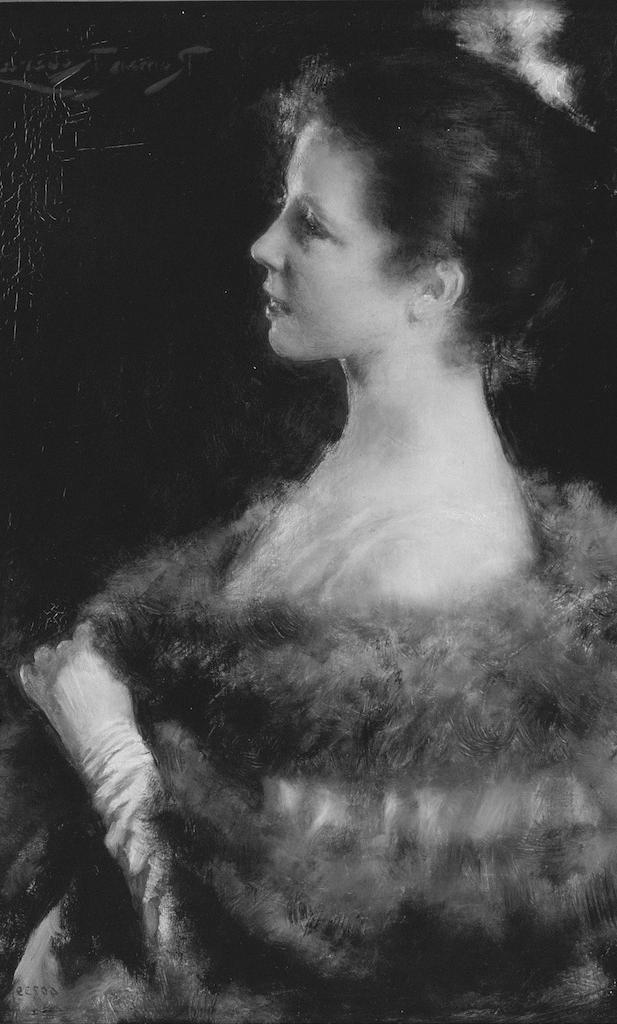
Here Before They Were
Justin Edse
A can of Pepsi at a train station has a stamped date
some say it’s 1995 others say it’s 1955 but no one knows except the man in the corner
the one who has been there the whole time ever since this place was built. playing his forgotten songs reciting his verses behind dark glasses. the bricks are his.
Melting into the background he witnesses all of life’s little moments; a sea of blue caps and gowns streaming down the stairs on their way to a graduation party
to a night walk a just married man shot in the back and thrown onto the tracks.
Then there’s the other kind who jump onto the tracks themselves to escape an insane world.
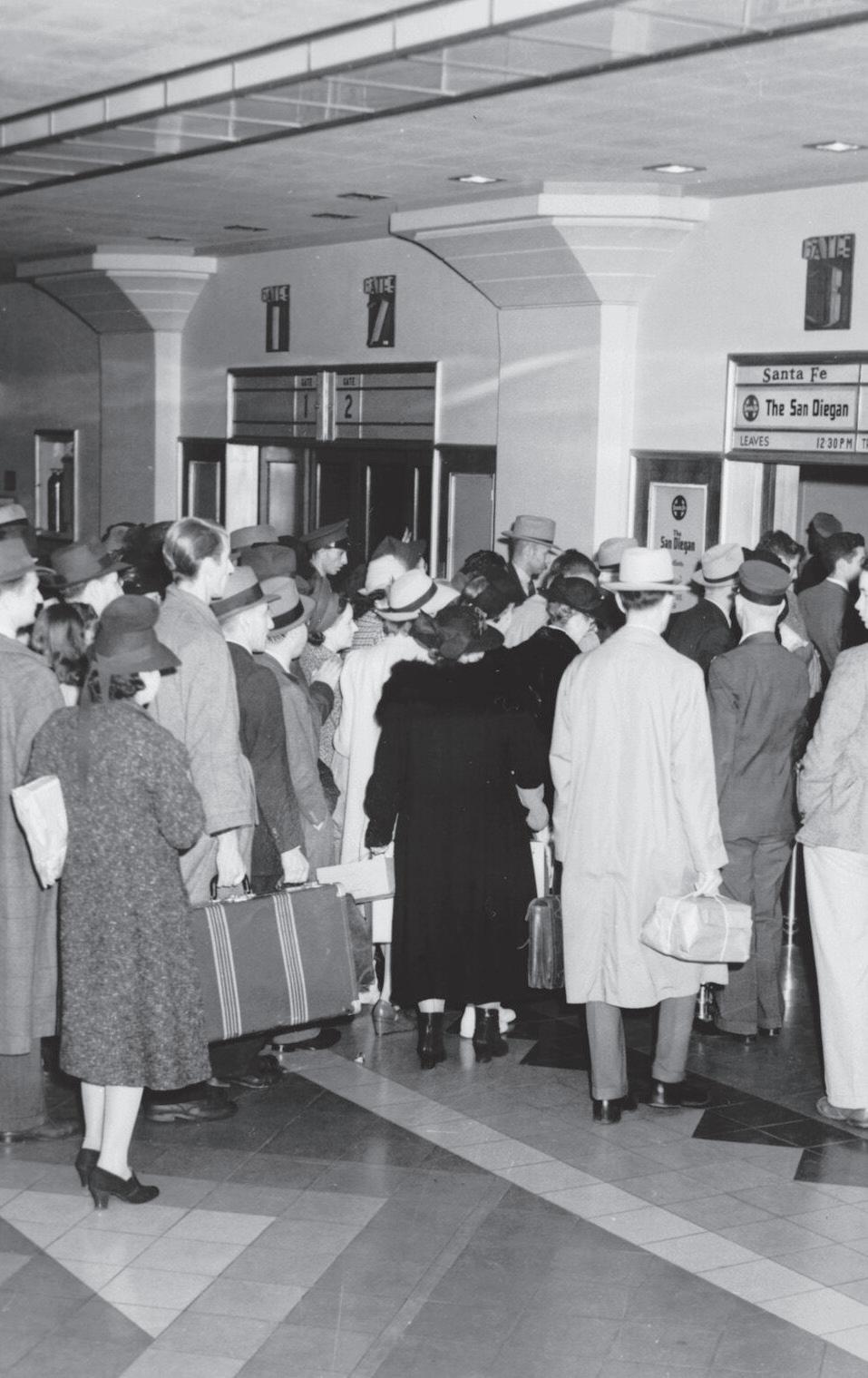
The Jungle, Or: Getting Out of a Dude’s House After Rejecting Him
Rachel Wagner
All the sudden his carpet turns to tall, tan grass and you forget which door leads where. Don’t even remember what street you’re on. You’re just here with this guy on his couch and he’s sitting too close and you’re planning a way to leave, and you know he’s going to take some gentle gearing in that direction. You can’t just say, flat out, Okay I’m leaving. No. Not in this situation. I mean how many Fireball shots has this man had in the past few hours?
You have to ask about tomorrow and follow up with more questions about what else will go on with him in the coming day. Then you start leaning a little away from him, maybe even a complete and subtle scoot. Avoid his kisses on your cheek. Here you can pull away clearly cuz he’s so stupid and stunned that he doesn’t even think to get offended in the moment. Smile and play it cool. Sit there for another minute because any sudden movements could ignite the fire that is already a few inches away. You have to peruse around a while. Take note of the curtains, as they say. Hey what’s this? Where you’d get that little thing on the shelf? Only then should you ask: Okay, so what time is it?
Act like you didn’t already know the time. Like it’s new information. Here you can introduce the idea that you might be heading out soon. A minute floats by, somehow, some way, and now you say: Okay well I think I’m going to go. Hear that? “Think.” It makes it seem spontaneous, like yeah-well-I-ought-to-get-going-no-big-deal. Because at this point you can see his Staten Island temper showing up like we’ve all seen on Jersey Shore, all that buff, tough man stuff, and you can either pretend like you don’t notice or you can react and be like, “Wait, are you mad right now?” Act like it’s ridiculous and probably not even possible. Deny it right to his face. No way you’re mad! Sure he’s mad. But he won’t admit it if you frame it like that.
Roll down the block in his car. He’s balling up his fist on the steering wheel and you might as well just look out the window at this point.
The Opiate, Fall Vol. 43
Fuck it. Upon arrival to your parked car, he’ll even try for another kiss without shifting to park. You swoop away, kind of redirect your face and say, Okay, good night. It’ll be a miracle to be touching the handle of your car door. You step out and look up and he’s already stormed off, his Chevy speeding down the road. And at this moment you’re suddenly magically safer standing on the dark street, halfway in your car in the middle of the night in West Bumblefuck, New Jersey.
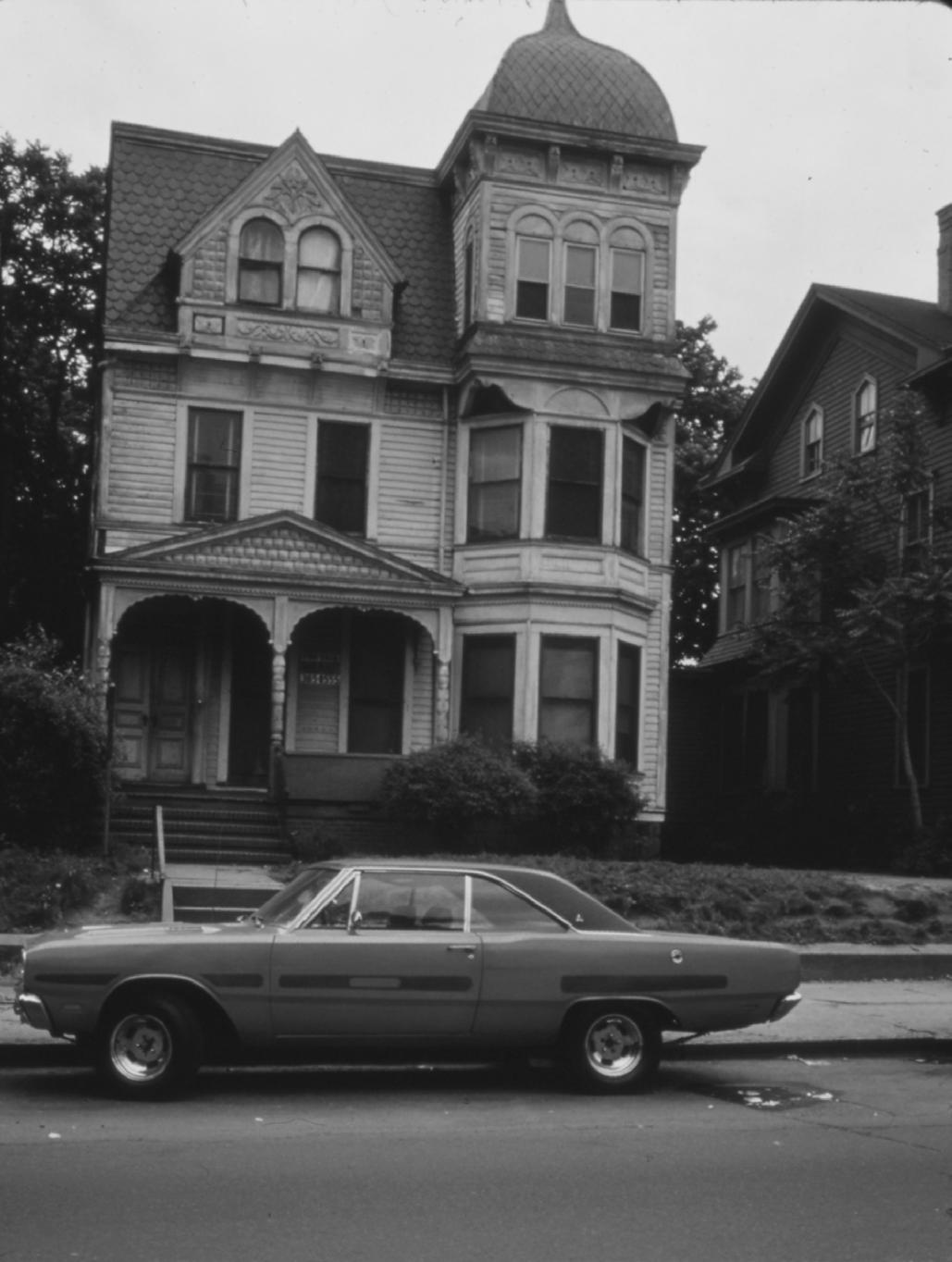
Did You Even Ride Your Bike in Newark If You Didn’t Get Hit?
Rachel Wagner
Or hit on. Most cars whip around without a clue to look at you. Driving on Broad Street, a person is riding one of those electric scooter things straight down the sidewalk. She has the right-of-way. But a hoopty putts along, making a turn directly into her. Lucky she wasn’t on a bike and was moving fast because they missed each other by an inch. The car only hit the brakes when it would have been too late. And she didn’t even flinch. She had on headphones and was gliding down the street in the zone. She probably felt like a car.
Out on a bicycle, you watch and you wait and you know the space well. You have to look around for yourself, you can’t rely on other people to look. It’s not that you have to gaze at each driver, but at least glance peripherally at everybody. Some drivers will look at you and even interact. I decide to meet them with my eyes when they talk shit to me. I don’t care. What are you possibly going to say? At least you might see that I am a living, breathing person with a consciousness inside. Wasup?
Riding on a bike, sometimes cars pull over asking for my number, but it’s mostly passersby—quick comments and catcalls come from the corner store. Others might be guys on bikes. I had one ask if I was trying to get in shape and I said I was already in shape and he said, Yeah that’s what I was going to say. I had to yell at another guy for trying to follow me on his bike, some bum-ass dude thinking he just got real lucky all the sudden. Nah I’m out here with my son and you need to back the fuck up.
The best guys to see out are the ones on bikes, as in motorcycles. Crotch rocket speedsters curving around the corner and slowing to see you a little bit longer. The scene proceeds in momentary slow motion. Their eyes wide behind their helmet, and mine too. Two wheels beneath us, we are on the same plane of air. I can’t forget though that one of my lil friends died that exact way, fell off his motorcycle on the highway down
The Opiate, Fall Vol. 43
south in the winter. And he was fine as hell, nice guy, had no kids—just tragic! And then around here I have a different friend that fixes bicycles and he tells me a lot of delivery guys go down getting hit by cars. All different versions of food splattered, body damaged, bike broken.
When I fell off my bike, it was the summer and it wasn’t because a car hit me. I was coming around the corner fast, standing up on a BMX. I passed by the flirting guys waving their little waves or sporting small smiles, an extended gaze. I rode down the block, almost on my way, but my pedal snapped off altogether and my body attached to the pavement. I saw myself go down. I felt in particular my head whack into the floor. Like I was consciously thinking, I know I’m falling right now but at least let me not hit my head.
Bang! I slid down into the potholes and got right back up off the road, hoping I didn’t break an arm or something. I hadn’t, but the only person that saw it happen was a woman sitting in her car.

Glamorous Whitegirl
Rachel Wagner
When we met he wasn’t into the street shit no more. I liked that. Cool. Extra cool. No late night early mornings running around dirty. Said he did that before, been to prison and all that but he was done, never again. On some fuck prison shit. Got a regular job, a 9-5, and wasn’t playing with it.
He told me that around the block behind my house. He didn’t live over here anymore but this was his hood, his block, his exact stomping ground. Told me that the first time we spoke it was random for him to even be there. Out on the street on a hot summer night. I was on my way to New York to go get dicked down by my ex, had on a freakum dress in the middle of the hood. Standing with strappy sandals on my feet on the cracked concrete in front of an empty lot a couple buildings down from the corner store.
Well that’s where he saw me from and from there on he was coming to see me and then quickly was coming around just for me. Even his people saw like, Yo you wasn’t out here like that before, wasup. Then of course people started to know what was up. Of course he was saying shit too. He was fuckin with the bad whitegirl in the brand-new building. But I was on my own finding out that he was back fucking with the white girl from his old building.
It started out small, like playing bodyguard, you know, just helping out when it was convenient. Directing people around turned to collecting a lil money turned to keeping a few bags on him himself. Hella singles, followed by a crumpled up baggy dropping down a couple seconds after his pants fall to the floor. Yeah, you know that turned to being on the block a lot more than my house. Turned to being outside without even looking around for me or nothing. I mean who am I now?
Well that turned to coming by for a second and then leaving. Or fuck it, not even coming back in the evening. I know that this is the prequel, this is what happens before en media res, this is how it goes when their heads fall forward and there’s nothing you can do about it.

Comfort Zone
Mark Katrinak
A contemplation of a movement out beyond the comfort zones—unlike a bird or squirrel quick and sure along a wire, a Lincoln Continental cruising past yield signs, a woman walking by herself past shady taverns after dark—not these fairly common, unblinking instances, but working past the mundane mental bounds— the ottoman of after-nine-to-five, compliance to computer monitors— is something thought-provoking, as mettlesome as wolves at risk, a haunted entity exaggerating adjectives. I’d like to hear a man arpeggiate bare wires of his soul, thereafter watch him close the crevices of a lonely woman’s broken heart then hike her epilogue of random falling stones. Our staying put proves quite hazardous— a lingering of doubt is shadowing the tepid shallows of the comfort zone.
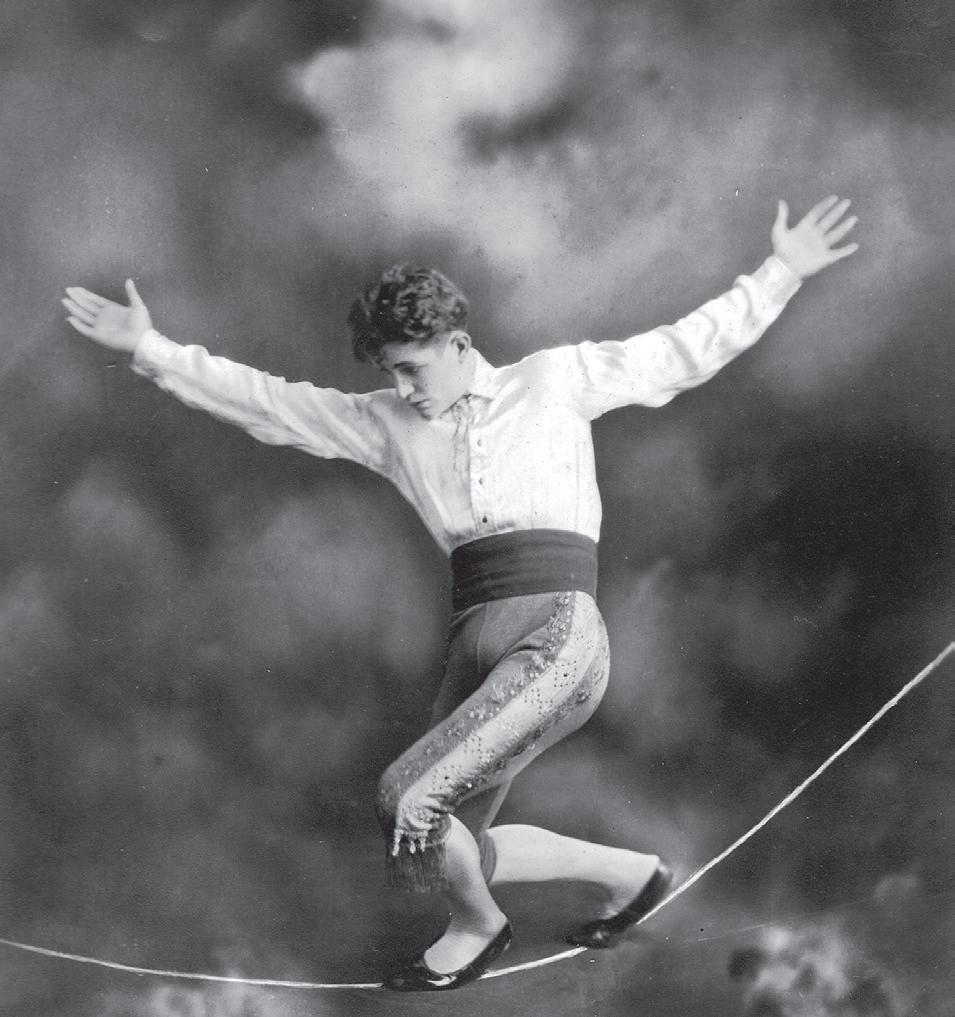
Blanket Hill
Mark Katrinak
Kent State shootings, 1970
May magnifies magnolias and memories, red ones as bright as drops of chosen blood. Holocaustic flashes return to springtime air; tortured souls can’t cross over to the dead.
Protests inflame the presidential lung. Under white cotton sheets trigger men lie. Student, beware the angles of geometry. “The shortest distance between two points is over four corpses.”
Thirteen seconds in Kent elicits screams. The demonstrations die like tulips near the end of May. “Dick always planned things out.” Ohio... ‘mong four, three of them were Jews whose parents fled. There is no promised land; open to any page and bloodshed speaks.

At This Age
Charlie Brice
At this age pulling down the sheets can unfold an unbearable sadness.
People you’ve known all your life give up on you suddenly like an ice storm that cancels spring.
You’ve read the sutras, studied the dogma, lit the incense, watched the smoke waft away to nowhere.
You’ve known all along about impermanence, but living it is another matter.
You witness your wife hobble through her days, each day a little less able, her best friend a four-wheel rolling walker.
You wake up, roll over, wonder if your fingers can form a fist today, twist the top off the goddamned mayonnaise jar, grip a knife to cut into a potato, push the cap down to open a fuckin’ pill bottle.
At this age you wonder: will you have a voice loud enough to rage against the dying light?
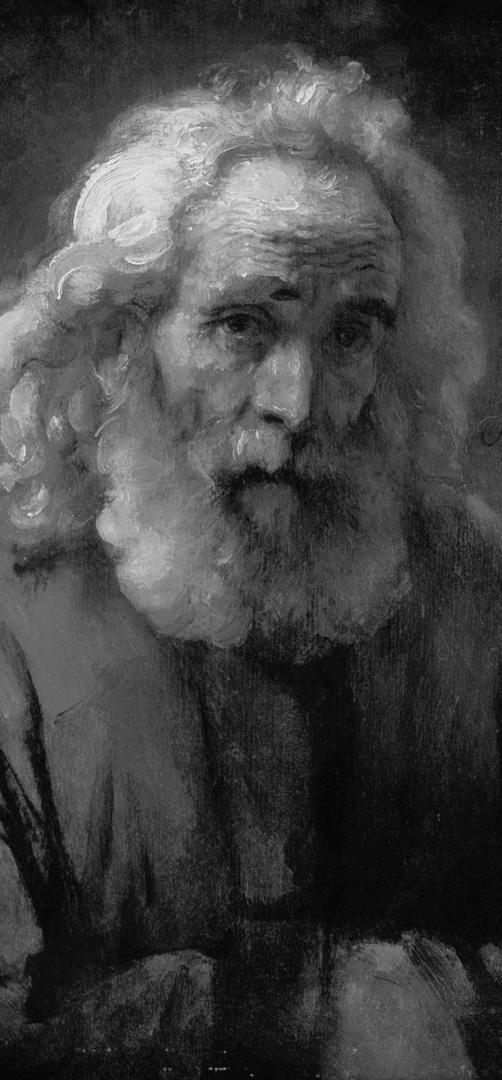
Piano
Charlie Brice
after Benjamin Curtaz & Son, a painting by Joyce Savre (featured below right)
I’m tired now, a little out of tune. Still upright, I wait for fingers to curve over my keys, voices to hum melodies.
The fun we’ve had! The family, my family, gathered ‘round me— Joyce’s joints banging out Christmas carols, a little ragtime, nursery jams—maybe Chopin, maybe Prokofiev. A child bounces on her lap, another stands near, grips a corner of my frame.
Jim strums his guitar, modulates, harmonizes—tunes to the key of steadfast, of committed. I like him there, standing by my side.
Friends from Pittsburgh arrive, Charlie and his son, Ari. They sit on my stool, find root chords, C to D to E to F. Sing, Once upon a time you dressed so fine, threw the bums a dime in your prime...
All of us, vagabonds of time, birthed into a melody that lives somewhere in memory. My strings await a final libretto, vibrate to the tempo of at home.
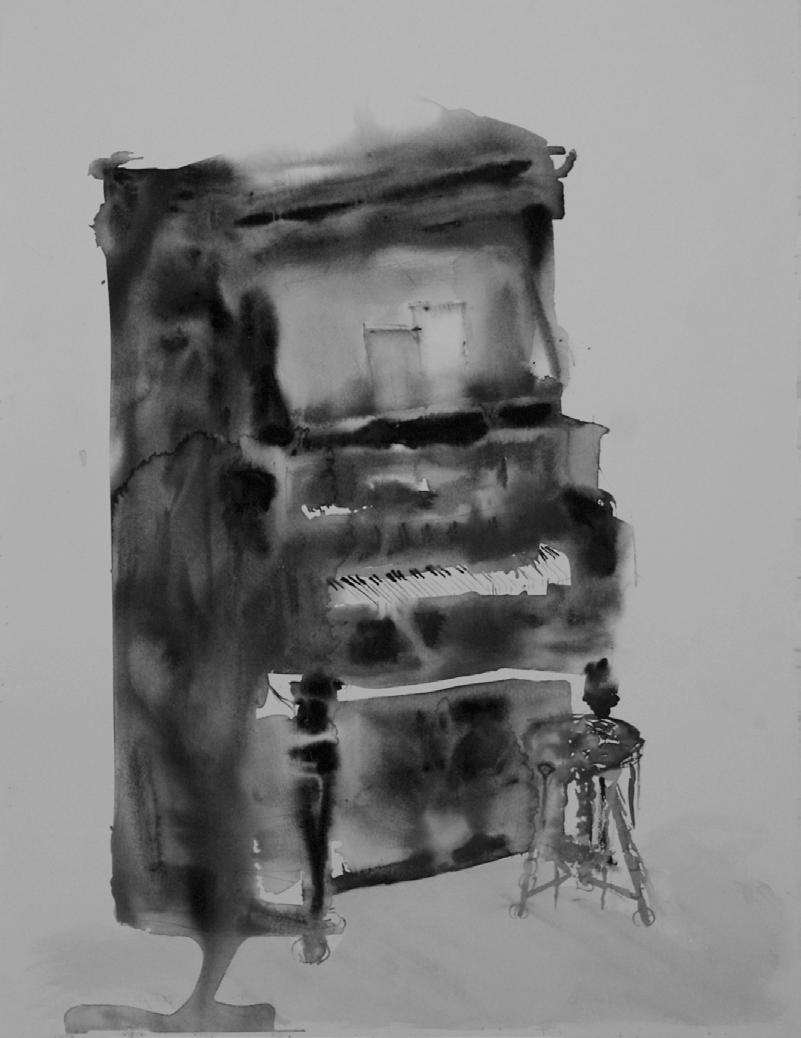
How to Kill a Vagabond
M. A. Reno
She spent the last six years traveling light living out of bags she could grab and take with her any moment because chaos coursed through her bloodstream like lightning lethal if she ran far enough she could leave it behind and eventually transitioned to those plastic storage boxes from Walmart or Target or Wherever but they still weren’t permanent because she wasn’t permanent because people weren’t permanent because she didn’t belong to places and places didn’t belong to her she ran away to Nevada and the desert held up a mirror lonely lifeless it mocked her but became comforting so she let it crawl inside with the adrenaline and venom and chaos it calmed her so she tried to take some with her—she almost said “home with her” but she remembered a poem she wrote in 2019 she was searching for home and maybe it wasn’t a place so much as a person or maybe my home was just myself but whatever it was she hadn’t found it so here and now your name is Reno and you said next year her name will be Reno and you noticed she still lived out of plastic boxes so yesterday you brought her home a dresser a big one and told her that you wanted her to stay
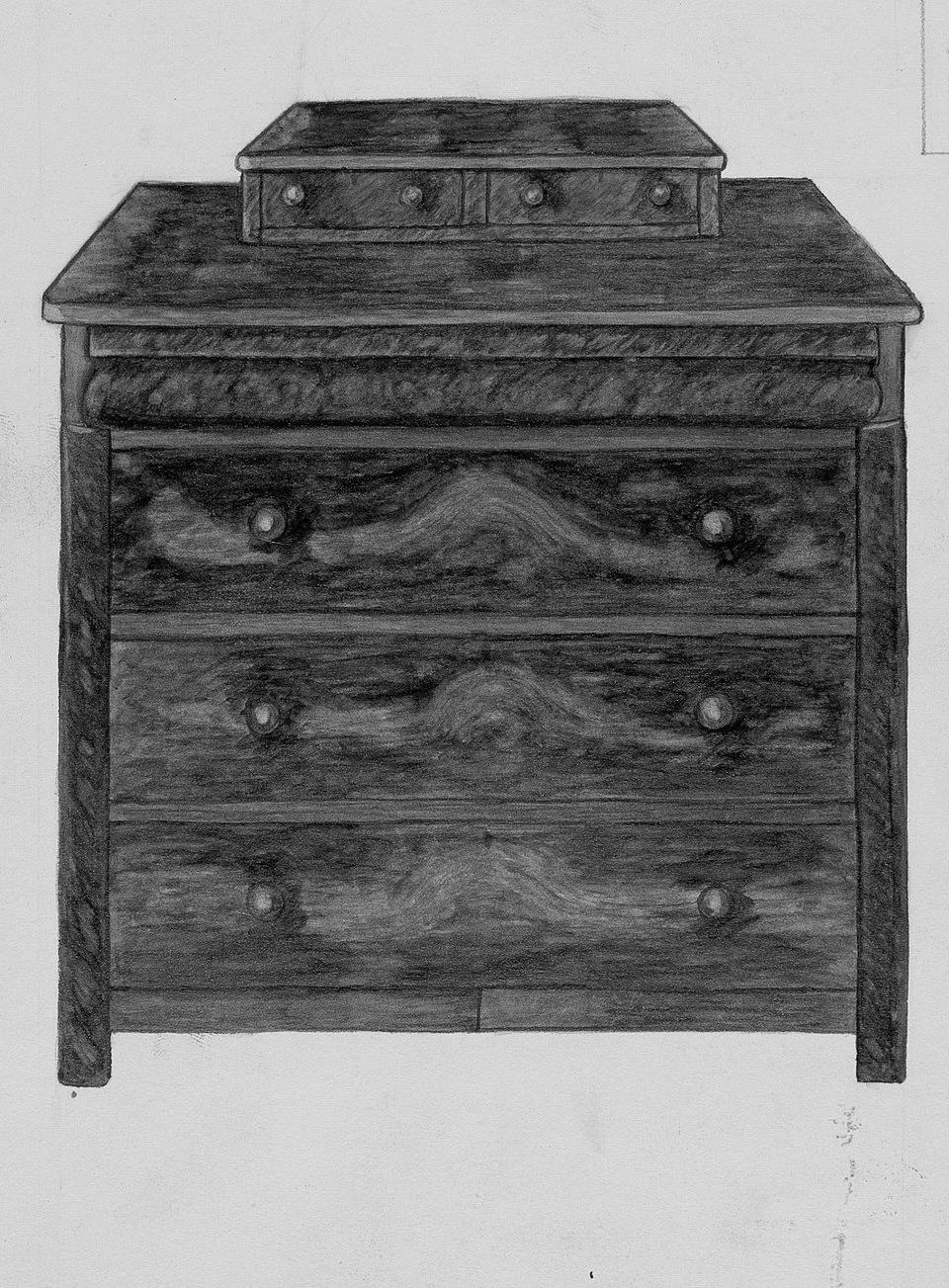
[Romans 7:15]
M.A. Reno
Ashes, Ashes
I’ve fallen down again
Skinned my knees on broken dreams
Ran into an old friend
& it was not a little lamb
But it was white as snow And everywhere I tried to run It somehow knew to go
& Mary loved the lamb, you know You know? You know?
You know
Quite contrary, the other Mary— What does her garden grow? I planted seeds of innocence The opposite is sown
Ashes, Ashes

You always knew I’d fall back down Plucking hyssops one minute, The next I’m underground
I skinned my knees on broken dreams I bit the fruit I ate the seeds I think I’m trapped Persephone
Imago
M. A. Reno
1. A caterpillar is always born on a lifesource And gorges on experience and Agave and Cacao
Sugarcane and Juniper sweet nectar of the Gods
She is greedy
A larva usually molts five times
Leaves an exoskeleton in Arizona, California, Nevada, Florida
A larva usually molts five times
Agave and Cacao Agave and Cacao Agave and Until it’s ready for the next stage
2. Chrysalis
Deconstruction starts in the dark
Self-destruction without witness
The cells melt and break apart
3. The moth is vulnerable when it emerges With shriveled, crooked wings
Damp and crumpled, she dries them
And when she finally unveils
She shines iridescent shades of green
4. The adult insect rarely grows any further Reborn under asterisms and effulgence, stardust and moonlight
In an oasis of opulence
Her second life begins
She can’t remember what she was before
Yet the DNA persists

The Glance
Ann Liebeck
The look upon that face which gazes out With hopeful light reflected in the eye
Unmarred by spite, derision, fear or doubt And caught in moment blessed, it asks not why.
This blessed fragment freezed in moving time It channels joy and expectation pure And traps the gazer in a beauteous rhyme Without disturbing glance, brave joy so sure.
What is behind that look so sweet, so fresh? Untrammeled by man’s machinations foul Its joy, delight, its freedom from a flesh Which often masked is set in blackened scowl.
Let’s celebrate sweet looks as signs of life
Obliterate the strains of daily life.

Voices
Ann Liebeck
“Do you still sing?” They say as if it was A thing that you switch on and off at will Or maybe one day you forgot because They said you were too old, over the hill
Continuing each day to vocalize
A daily habit hard to drop, to suit
All expectations meant with faint surprise And guaranteed to wound with sense acute.
When making music publicly you must Be smooth of visage, youthful, sexy, hot And inner power, faith, you should not trust To speak your truth when that is all you’ve got!
Life is unkind to older singers now And “plus ça change” we never should avow...

Gone
Ann Liebeck
The day you realize you lost your parents
Both of them gone and now you’re on your own
The growing pains of callow adolescents
An empty nest the sign the bird has flown
But death’s a complex state to understand
A body, empty shell of bone and fiber
And realize they never left, at hand
Is Lethe’s spirit, hovering subscriber
They’re still in charge, they gave you life and love
Impossible to wish them far away
And on that boat Oblivion they’ll prove
They’re with you, every hour of every day.
Honor thy father and mother says the Book
So far ahead of you, Death just mistook...

CRITICISM
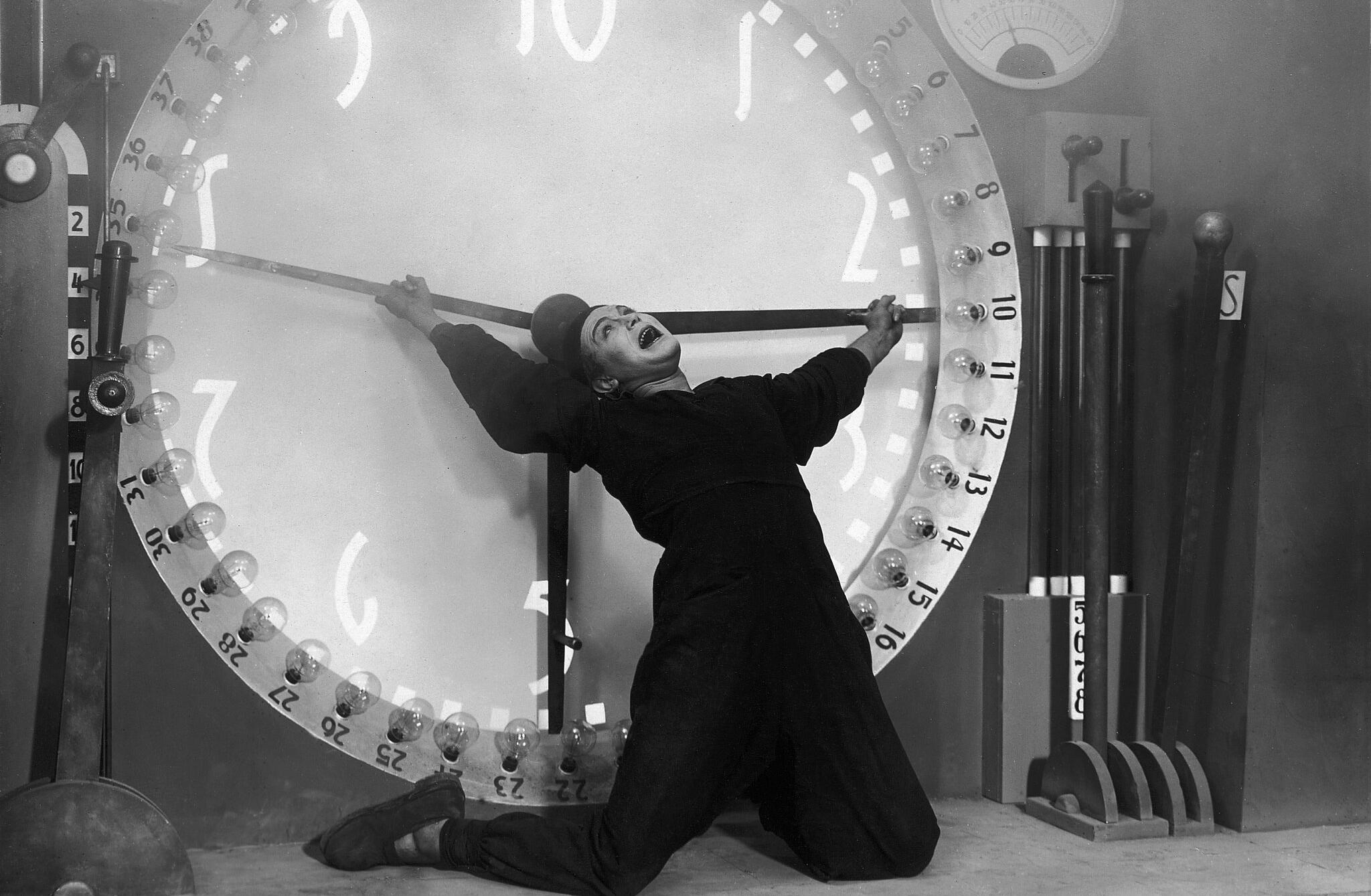
The Time Machine, Metropolis and Madonna
Genna Rivieccio
At the time when Metropolis was released, H. G. Wells, of all people, was one of the (self-styled) critics who panned it. In fact, he went so far as to say that Fritz Lang’s masterpiece was little more than “foolishness, cliché, platitude and muddlement about mechanical progress and progress in general.” Perhaps his sense of being affronted came from the fact that he felt his own “take” on such a concept was far superior, having explored it in The Time Machine, released in 1895. Thirty-two years before the release of Metropolis in 1927.
Although The Time Machine, as its title would suggest, is often associated with time travel—and, more specifically, innovating the very idea that a time machine could exist, with Wells coining said term in order to convey the concept—its true core theme relates to class division. Set during Wells’ then present—the Victorian era—the story commences with the protagonist of the tale, referred to only as The Time Traveler (or The Time Traveller, as far as the Brits are concerned), informing his weekly roster of “esteemed” (read: moneyed) dinner guests that he has invented an apparatus for time travel. Because, before being a time traveler, he is a scientist. Though, perhaps after
his “little jaunt” into the year 802,701, he wishes he never had been. For it is all thanks to his scientific prowess that he discovers what has become of humanity during this era. Or at least, what’s left of humanity. Which is just this: two sects divided into the Elois and the Morlocks. The Elois being the representation of the “affluent” (a.k.a. do-nothing) class and the Morlocks being the representation of the poor working class, relegated to living underground as they keep the city quite literally running via the machinery they’re tasked with maintaining. In this regard, Metropolis shares a key aspect and theme with The Time Machine. 800,806 years into the future, rather than seeing all the progress and harmony The Time Traveler had naively hoped for, he sees something perhaps even worse than devolution: stagnation. And it is one of Wells’ primary intents of the story to remind that just because a life filled with—nay, dictated by—technological advancements is meant to make it all “so much easier,” it doesn’t mean that, in the end, what it really serves to do is make the masses complacent. Effectively “disable” them. Because once they’ve grown accustomed to everything running on machine-operated autopilot, they begin to forget how to function at even the most basic of levels as a human being. Which is how the Morlocks end up being mere “maintenance workers” of the machinery that helps to keep the city afloat. Running on all cylinders, as it were. But what they do is hardly coming from a place of “altruism” or even for the sake of something akin to “being paid.” No, the reason why they work so hard is to keep themselves alive...by keeping the Elois alive— only to hunt and eat them at night, when they’re able to crawl from out of the depths, what with being extremely sensitive to light and sun.
By ensuring the Elois are “fat and happy,” as it were, the Morlocks also ensure that they, too, will be fat and happy, in their way. Specifically through consumption. More to the point, through cannibalism. This in and of itself indicating a certain dark commentary on the nature of capitalism, which, sooner or later, ends up leading people to do some very macabre shit. And since capitalism leads most business models themselves to cannibalism, it’s not as though that of the human variety is far behind. Indeed, Wells’ prediction about the lower classes evolving into an entirely different species that feeds on their counterpart “evolved” new species (the wealthy) is in keeping with the increasingly touted adage, “Eat the rich.” And so the Morlocks do. Not for enjoyment or anything like “social commentary,” but quite simply for survival.
Being that the Elois evolved from the upper class, they’re weak, lily-livered sorts that don’t know how to do anything for themselves. Which is part of what makes them so easy for the Morlocks to prey upon. Because of their centuries-long lack of struggle, both mentally and physically, they’ve become like soft, brainless things that can no
The Time Machine, Metropolis and Madonna - Genna
longer do much of anything, least of all be useful (not that their rich ascendants really were either). As Wells tells it, “...the gradual widening of the present merely temporary and social difference between the Capitalist and the Labourer, was the key to the whole position” of this stark and shocking evolution. To be sure, when Wells was writing the story, there was an increased, post-Industrial Revolution-based fear about the ever-widening gap between the social classes. In 1925, it appeared as though that fear had not diminished, at least not in Europe. For that’s when Thea von Harbou released her very-reminiscent-of-The Time Machine novel, Metropolis. And yes, von Harbou, married to Fritz Lang, bore in mind while writing the book that it would be adapted into a film in collaboration with her husband.
The crux of the novel is just as it is in the film: an exploited “lower” class (literally and figuratively) is relegated to keeping the futuristic city—the metropolis—up and running while its affluent class (the “founders”) sit up high in their proverbial ivory towers (though, in this case, “steel tower” rings truer). The intensity of the class divide is so strong that a civil war begins to seem inevitable. If it sounds slightly familiar, then, well, perhaps you’re living in some version of reality rather than willful oblivion. Except that, of course, the divide, particularly in the U.S., isn’t just of a class variety, but of a political and technological one. As for the latter category, there is an increasing rift between those who wish to embrace AI and those who don’t. And it’s not as if those who don’t are “Luddites,” it’s that they can see, more and more, that there is no place in this world for “humanity.” Only that which loosely “resembles” it (this being a nod to how androids have a “human-like” appearance).
This, too, is why one of the most salient title cards of the silent film is: “The Mediator Between the Head and Hands Must Be the Heart.” Serving as the concluding “takeaway” of the film, with Freder (Gustav Fröhlich) joining the hands of Grot (Heinrich George), the guardian of the Heart Machine, and Joh Fredersen (Alfred Abel), Freder’s father and the “master” of Metropolis, it is a message that gets revamped in Madonna’s 1989 video for “Express Yourself.” For at the end of her “rendition” of the film, she opts for the title card, “Without the heart, there can be no understanding between the hand and the mind.” Considering that Madonna had, by this point in time, already been billed as all machine with no heart, it was a fairly pointed statement to make. And as for incorporating the plot and aesthetic of Metropolis into her David Fincher-directed video, it was yet another escalation of Madonna embodying her flair for postmodernism at a time when it was still germinal. However, M’s first major foray into going full-tilt postmodern was 1985’s “Material Girl” video, during which she did her best Marilyn-in-Gentlemen Prefer Blondes impersonation
while interweaving the famed “Diamonds Are a Girl’s Best Friend” performance into her own narrative. One that insisted Madonna was being purely ironic when she chirped, “‘Cause we are living in a material world, and I am a material girl.” And, talking of irony, there’s no denying it in terms of Madonna, capitalist extraordinaire, feeding Metropolis back into popular culture at a far more modern level. And this being done at the end of the “Decade of Excess” is not to be
“800,806 years into the future, rather than seeing all the progress and harmony The Time Traveler had naively hoped for, he sees something perhaps even worse than devolution: stagnation. And it is one of Wells’ primary intents of the story to remind that just because a life filled with—nay, dictated by—technological advancements is meant to make it all ‘so much easier,’ it doesn’t mean that, in the end, what it really serves to do is make the masses complacent.”
underestimated. For, going into the 90s, with George Bush I becoming the president of the new decade (despite being a holdover from the previous one), the U.S. was about to enter a recession. And, although it was deemed short-lived—roughly eight months between August 1990 and March 1991—unlike other recessions, this one was known for not only costing an incumbent president the next election, but also resulting in a slow recovery when it came to employment. So while the economy might have been “booming” (see also: Bill Clinton’s winning campaign slogan, “It’s the economy, stupid”), those who had lost their jobs as a result of the recession did not so easily “recoup” them.
While Madonna might not have intended to be a “prophet” on that front, there were some uncanny correlations to her timing the release of “Express Yourself” almost as a harbinger of things to come in the early 90s. Not only in terms of the ever-increasing class war in the U.S. (thanks to it being the most pro-capitalist nation on the planet),
but also in terms of signaling the “slump” her own career endured after the “Vogue” and Blond Ambition Tour era. That “eeriness” aside, Madonna’s reworking of Metropolis into a kind of PSA for “pussy power,” complete with her walking around as the proverbial “master of Metropolis” (ergo, repurposing the Joh Fredersen role for herself) while stroking a black cat, was fundamentally meant to reinvent the class war concept as one of a gender war. With women at last winning. Albeit, as is Madonna’s internally misogynistic way, by acting like dickswinging men (this much is further evinced by Madonna grabbing her crotch as though there is that phantom appendage there—as “inspired by” Michael Jackson).
The heavy-handed symbolism of the cat as “pussy” persists when it runs away from the cush environs where Madonna the Master resides and into the “bowels” of the machinery, almost as if in search of one of these “big, strong” men to lure back into Madonna’s lair (which, of course, inevitably happens). All the while, the song itself is being presented as though it’s being played through the various pipes like it’s on “loudspeaker” mode, indoctrinating the male masses with Madonna’s message whether they want to hear it or not. Indeed, at one point, the song is portrayed like it’s being funneled through the actual loudspeakers as the “big kahuna” (though not as big of one as Madonna) overseeing the shirtless, muscular workers looks up incredulously at what he’s hearing: “You know, you know, you’ve got to/Make him express how he feels/And maybe then you’ll know your love is real.” Wearing a monocle and a suit, his role appears to be modeled after a combination of Joh Fredersen and Grot. And he isn’t the only one being captivated by Madonna’s instructional advice to women—being presented to men (just another way in which Madonna has often aimed to sardonically degrade “straight” men by treating all of them as gay). Another worker, who is billed only as Man (and played by model Cameron Alborzian), also takes major note of Madonna’s voice booming through the speaker, hearing her continue to wax on, “Long-stem roses are the way to your heart/But he needs to start with your head.” That heart and head mention foreshadowing the final title card of the video: “Without the heart, there can be no understanding between the hand and the mind.”
At the same time, without a man’s adequate bank account, there can be no understanding between him and a woman who wants to be “romanced” (that is, in Western society). For it is just as Madonna says in the aforementioned “Material Girl”: “Some boys kiss me/Some boys hug me/I think they’re okay/If they don’t give me proper credit/I just walk away/They can beg and they can plead/But they can’t see the
light/‘Cause the boy with the cold hard cash/Is always Mister Right.” For it is only the boy with the cold hard cash—not the boy who works in a factory like the ones shown in “Express Yourself”—who can afford to outfit a bed in satin sheets. The ones that Madonna calls out in the verse, “Satin sheets are very romantic/What happens when you’re not in bed?/You deserve the best in life/So if the time isn’t right, then move on/Second best is never enough/You’ll do much better, baby, on your own.” And what she ultimately means when she refers to “second best” is a man who doesn’t have the bank account to treat her in a manner she’s “deserving” of. Long-stem roses, satin sheets and all (side note: you can’t spell satin sheets without “stain”).
Unfortunately for Madonna, the fetishist of the working class in this video, she seems to nonetheless be quite attracted to these broke boys. Especially the one that her cat finally homes in on (Alborzian). Her “wet pussy,” as it were. Because, naturally, the cat is in the rain when it lands in Man’s lap. Man, only too willing to play his servile part, dutifully takes the cat back up into the ivory tower where Madonna is conveniently naked in bed with a chain around her neck. And to those who would call such a scene a form of debasement, Madonna was sure to clear things up on that front when she told Forrest Sawyer during her 1990 Nightline interview, “There wasn’t a man that put that chain on me, I did it myself. I was chained to my desires, I crawled under my own table. You know, there wasn’t a man standing there making me do it. I do everything by my own volition. I’m in charge, okay? Degradation is when somebody else is making you do something against your wishes.”
But then, if that’s the case, there’s a lot of degradation going on elsewhere in the video as Madonna essentially parades the exploitation of a working class that has no desire to be there (and would probably be quite happy to put a long-sleeve shirt on while working in the cold rain). Even Madonna’s monocle-wearing middleman appears to engage in his own unique and voyeuristic form of fetishism while off the clock, watching a bevy of musicians blowing their horns (read that how you will in terms of innuendo) inside a glass structure that’s been placed inside his own apartment within the Metropolis.
That all of these people, no matter what their status, effectively live where they work is also a prophetic commentary on how, in the future, no one would ever really be “off” when it came to performing labor. For, although it isn’t considered “physical work” to be available to your boss by phone/email basically twenty-four hours a day, it is work regardless. Work that one isn’t paid for; work that isn’t factored into the overall paycheck.
But Madonna is making less of a statement on that and more
The Time Machine, Metropolis and Madonna - Genna Rivieccio
of a statement on the power imbalance between men and women. Particularly in a workplace environment. That she is the capo of it all is a testament to her overarching theme: things run better when a woman is at the top. Granted, she kind of shoots herself in the foot with that intent in that, by the end of the video, there’s a grand tussle among some of the workers down below while Madonna gets her sexual satisfaction up above. In one sense, it could be interpreted to mean that women are just as run by their genitals as men (therefore, actually delivering a fairly feministic message). In another, it could be seen as the idea that men, when left only with their own gender, cannot control their violent urges. However, when a woman is around, per the “Express Yourself” narrative, things turn amorous. Or at least “violent” in a way that pertains to the sexual “throwdown.”
Either way, Madonna’s contribution (whether deliberate or not) to the increasing “subversion” of the original work—which, in the end, is The Time Machine, not Metropolis—is one that the Brits already learned quite well in the 1980s: a woman in charge doesn’t automatically signal “competence” and “smooth sailing.” Nor does a woman in charge assure any kind of drastic change when it comes to bridging the evermounting class divide. A divide that’s become so massive at this juncture that it’s not difficult at all anymore to buy into Wells’ erstwhile “farfetched” conjecture about the future, with the Elois and the Morlocks representing their rich and poor forebears, respectively (and regardless of the gender of each rich and poor person). Then again, since AI is currently at play in all things, perhaps both factions will be obliterated anyway before it gets to that state. With AI “expressing itself” in the ultimate way.
If you like The Opiate magazine, you’ll love The Opiate Books. Find our current roster of titles (featured below) online or at your favorite bookstore. Visit theopiatebooks.com for more information.
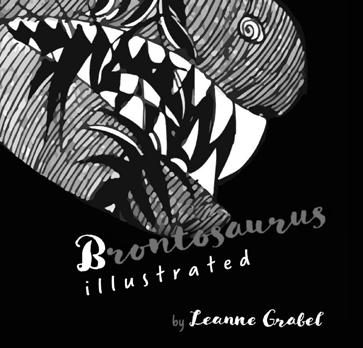
Released: June 2022
List price: $34.99


Released: April 2023
List price: $10.99


List price: $18.99




Brontosaurus Illustrated by Leanne Grabel
Megalodon by Donna Dallas
Lindsay Lohan Stole My Life (A Tate Carmichael Novel) by Genna Rivieccio
Released: April 2023
Yet So As By Fire: A Passion Play in Two Acts by Anton Bonnici
Released: December 2021 List price: $12.99
Quasar Love: A Reenactment in Three Acts by Anton Bonnici
Released: August 2022
price: $12.99
Pornotopia: The Incomplete Texts by Anton Bonnici Released: July 2024
price: $12.99
Atlas, Bound by Victor Marrero Released: July 2023
price: $15.99
I Love Paris by Rufo Quintavalle Released: September 2023
price: $10.99
This Rescue Thing by Penny Allen Released: April 2024
price: $18.99
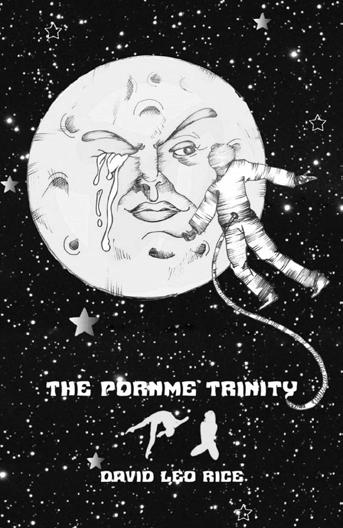


The PornME Trinity (2nd Edition) by
On the Way to Invisible by Antonia Alexandra Klimenko
David Leo Rice
Released: October 2022
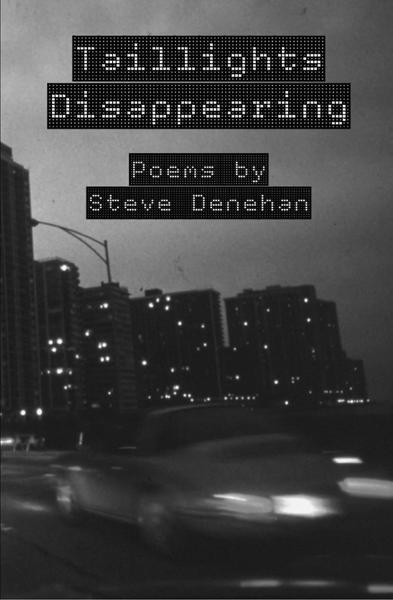
Taillights Disappearing by Steve Denehan
Released: November 2024 List price: $14.99

The Verities of Love by Ron Kolm
Released: March 2025
price: $12.99
Released: June 2024 List price: $14.99
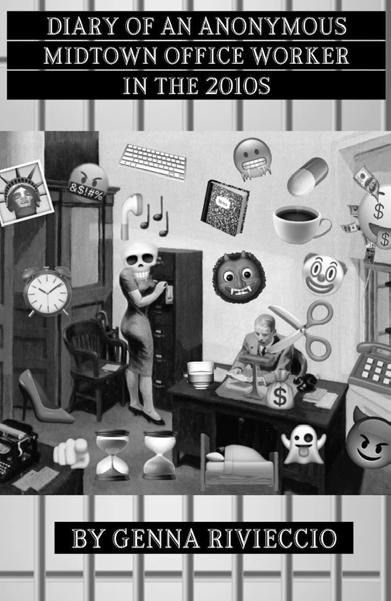
Diary of an Anonymous Midtown Office Worker in the 2010s by Genna Rivieccio
Released: January 2025
price: $23.99

When the Phone Rang by Anton Bonnici & Youssef Alaoui
Released: April 2025
price: $14.99
Released: September 2024 List price: $14.99
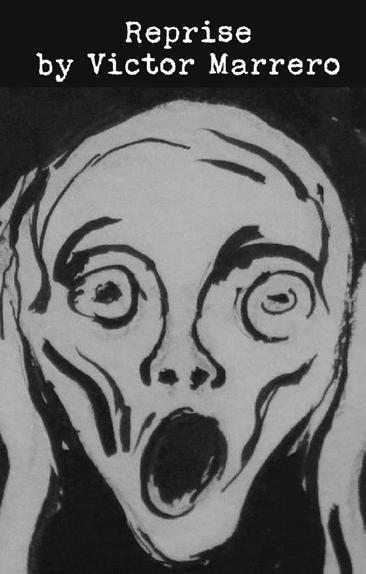
Reprise by Victor Marrero
Released: January 2025 List price: $7.99

Let’s All Be Happy Today by Joel Allegretti
Released: October 2025
price: $18.99
The Fire Within by Chiara Maxia

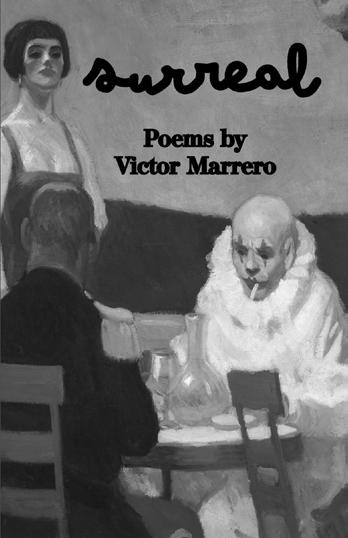
William Walrond Strangmeyer
Restless Demons Sing to Me of Angels’ Wings & Human Claws by
Released: October 2025
List price: $14.99
Released: November 2025
List price: $15.99
Surreal by Victor Marrero
Is it fall or just the fall of humanity?
Whatever your take, The Opiate, Vol. 43 is here to help you during this difficult time of AI revolution/human work and art overthrow. To combat your woes, dive into fiction, poetry and nonfiction from the following humans: William K. Burke, Alex Encomienda, Salvatore Difalco, Caroline Tilley, Jacob Edenfield, Laura Leary, David Estringel, Megha Sood, Leslie Young, Stephen Barile, E. P. Kataratos, Justin Edse, Rachel Wagner, Mark Katrinak, Charlie Brice, M. A. Reno and Ann Liebeck.

The
